#Art Net Magazine
Explore tagged Tumblr posts
Text
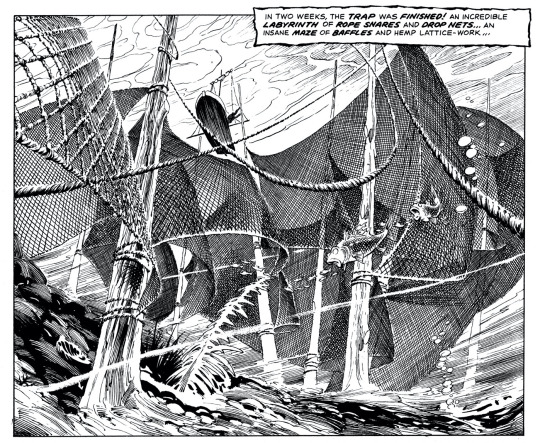
Eerie Magazine No. 58: The Pepper Lake Monster
by Berni Wrightson
#comics#comic books#art#illustration#panelswithoutpeople#b&w#black and white#Eerie#Eerie magazine#a warren magazine#warren magazines#the pepper lake monster#berni wrightson#bernie wrightson#fishing#fish#net#fishing net#sailboat
17 notes
·
View notes
Text
No, the Popularity of Abstract Art is Not the Result of a CIA PsyOp
If you are unlucky enough to move around the internet these days and talk about art, you’ll find that many “First commenters” will hit you with what they see as some hard truth about your taste in art. Comments usually start with how modern art is “money laundering” always comically misunderstanding what that means. What they are saying is that, of course, rich people use investments as tax shelters and things like expensive antiques and art appraised at high prices to increase their net worth. Oh my god, I’ve been red-pilled. The rich getting richer? I have never heard of such a thing.
What is conveniently left out of this type of comment is that the same valuation and financial shenanigans occur with baseball cards, wine, vacation homes, guitars, and dozens of other things. It does indeed happen with art, but even the kind that the most conservative internet curator can appreciate. After all, Rembrandts are worth money too, you just don’t see many because he’s not making any more of them. The only appropriate response to these people who are, almost inevitably themselves, the worst artists you have ever seen, is silence. It would cruel to ask about their own art because there’s a danger they might actually enjoy such a truly novel experience.
When you are done shaking your head that you just subjected yourself to an argument about the venality of poor artists plotting to make their work valuable after they died, you can certainly then enjoy the accompanying felicity of the revelation they have saved to knock you off your feet: “Abstract art is a CIA PsyOp”
Here one must get ready either to type a lot or to simply say “Except factually” and go along your merry, abstract-art-loving way. But what are the facts? Unsurprisingly with things involving US government covert operations, the facts are not so clear.
Like everything on the internet, you are unlikely to find factual roots to the arguments about government conspiracies and modern art. The mere idea of it is enough to bring blossom for the “I’m not a sheep” crowd, some of whom believe that a gold toilet owning former president is a morally good, honest hard-working man of the people.
The roots of this contention come from a 1973 article in Artforum magazine, where art critic Max Kozloff wrote about post-war American painting in the context of the Cold War, centering around Irving Sandler’s book, The Triumph of American Painting (1970). Kozloff takes on more than just abstract expressionism in his article but condemns the “Self-congratulatory mood”of Sandler’s book and goes on to suggest the rise of abstract expressionism was a “Benevolent form of propaganda”. Kozoloff treads a difficult line here, asserting that abstraction was genuinely important to American art but that its luminaries, “have acquired their present blue-chip status partly through elements in their work that affirm our most recognizable norms and mores.”
While there were rumblings of agreements around Kozloff’s article of broad concerns, it did not give birth to an actual conspiracy theory at the time. The real public apprehension of this idea seems to mostly come from articles written by historian Frances Stonor Saunders in support of her book, “The Cultural Cold War: The CIA and the World of Arts and Letters” (New York, New Press, 2000). (I have not read this 525 page book, only excerpts).
The gist of Ms. Saunders argument is a tantalizing, but mostly unsupported, labyrinthine maze of back door funding and novelistic cloak and dagger deals. According to Saunders, the Congress for Cultural Freedom (CCF), an anti-communist cultural organization founded in 1950, was behind the promotion of Abstract art as part of their effort to be opinion makers in the war against communism. In 1966 it was revealed that the CCF was funded by the CIA. Saunders says that the CCF financed a litany of art exhibitions including “The New American Painting” which toured Europe in the late 1950s. Some of this is true, but it’s difficult, if not impossible, to know the specifics.
Noted expert in abstract-expressionism, David Anfam said CIA presence was real. It was “a well-documented fact” that the CIA co-opted Abstract Expressionism in their propaganda war against Russia. “Even The New American Painting [exhibition] had some CIA funding behind it,” he says. But the reasons for this are not quite what the abstract art detractors might be looking for. After all, the CCF also funded the travel expenses for the Boston Symphony Orchestra and promoted Fodor’s travel guides. More than trying to pull the wool over anyone’s eyes, it was meant to showcase the freedom artists in the US. enjoyed. Or as Anfam goes on to say, “It’s a very shrewd and cynical strategy, because it showed that you could do whatever you liked in America.”
For what it’s worth, Saunders’s book was eviscerated in the Summer 2000 issue of Art Forum at the time of its publication. Robert Simon wrote:
“Saunders draws extensively on primary and secondary sources, focusing on the convoluted money trail as it twists through dummy corporations, front men, anonymous donors, and phony fund-raising events aimed at filling the CCF’s coffers. She makes lengthy forays into such topics as McCarthyism, the formation and operation of the CIA, the propaganda work of the Hollywood film industry, and New York cultural politics—from Partisan Review to MoMA to Abstract Expressionism. Yet what seems strangely absent from Saunders’s panoramic history, as if it were a minor detail or something too obvious to require discussion, is the cultural object itself: The complex specifics of the texts, exhibitions, intellectual gatherings, paintings, and performances of the culture war are largely left out of the story.”
Another problem with the book seems to be that Saunders is an historian but not an art historian. For me, I sensed an overtone of superiority in the tale she’s spinning and most assuredly from those that repeat its conclusion. The thinly veiled message of some is that if it were “Real art” it would not have had be part of this government subterfuge. The reality is very different. For one thing, most of us know it is simply not true that you can make people devoted to a type of art for 100 years that they would sensibly hate otherwise. Another issue is that it’s quite obvious none of the artists actually knew about any government interference if there was any. Pollock, Rothko, Gottlieb and Newmann were all either communists or anarchists. Hardly the group one would recruit the help the US government free the world of communism. Additionally, this narrow cold war timeline ignores a huge amount of abstract art that Jackson Pollock haters also revile and consider part of the same hijacking of high (Frankly, Greek, Roman, or Renaissance) culture. If you look at the highly abstract signature work of Piet Mondrian and observe the dates they were painted, you’ll see 1908, 1914, 1916. This is some of the art denigrated as a CIA PsyOP, 35 years before the CIA even thought about it. Modern art didn’t come from nowhere as many would have you believe to discredit its rise. There was Surrealism, Dada, Bauhaus, Russian futurism and a host of other movements that fueled it.
Generally, people like to argue. On the internet, “I don’t like this” is a weak statement that always must be replaced by “This is garbage” or my favorite, “This is fake.”
It’s hardly surprising that the more conservative factions of our society look for any government involvement in our lives to explain why things are not exactly as they wish them to be, given the (highly ironic) conservative government-blaming that blew up after Reagan. In addition, modern fascists have always had a love affair with the classical fantasy of Greece and Rome. Both Mussolini and Hitler used Greece and Rome as “Distant models” to address their uncertain national identity. The Nazis confiscated more than 5,000 works in German museums, presenting 650 of them in the Entartete Kunst (Degenerate Art, 1937) show to demonstrate the perverted nature of modern art. It featured artists including Marc Chagall, Max Ernst, Wassily Kandinsky, and Paul Klee, among others. The fear of art was real. It was the fear of ideas.
To a lot of people on the internet just the mentioning a “CIA program” is enough to get the cogs turning, but as with many things, the reality of CIA programs and government plots is often less than evidence of well planned coup.
The CIA reportedly spent 20 millions dollars on Operation Acoustic Kitty which intended to use cats to spy on the Kremlin and Soviet embassies. Microphones were planted on cats and plans were set in motion to get the cats to surreptitiously record important conversations. However, the CIA soon discovered that they were cats and not agreeable to any kind of regulation of their behavior.
As part of Operation Mongoose the CIA planned to undermine Castro's public image by putting thallium salts in his shoes, which would cause his beard to fall out, while he was on a trip outside Cuba. He was expected to leave his shoes outside his hotel room to be polished, at which point the salts would be administered. The plan was abandoned because Castro canceled the trip.
Regardless of your feelings on this subject or how much you believe abstract art benefited from government dollars, Saunders herself quotes in her book a CIA officer apparently involved in these “Long leash” influence operations. He says, “We wanted to unite all the people who were writers, who were musicians, who were artists, to demonstrate that the West and the United States was devoted to freedom of expression and to intellectual achievement, without any rigid barriers as to what you must write, and what you must say, and what you must do.” Hardly the Illuminati plot we were promised.
In 2016, Irving Sandler, author of the book that started Kozloff tirading in 1973, told Alastair Sooke of The Daily Telegraph, “There was absolutely no involvement of any government agency. I haven’t seen a single fact that indicates there was this kind of collusion. Surely, by now, something – anything – would have emerged. And isn’t it interesting that the federal government at the time considered Abstract Expressionism a Communist plot to undermine American society?”
This blog post contains information and quotes sourced from The Piper Played to Us All: Orchestrating the Cultural Cold War in the USA, Europe, and Latin America, Russell H. Bartley International Journal of Politics, Culture, and Society, Vol. 14, No. 3 (Spring, 2001), pp. 571-619 (49 pages) https://www.bbc.com/culture/article/20161004-was-modern-art-a-weapon-of-the-cia https://brill.com/view/journals/fasc/8/2/article-p127_127.xml?language=en https://www.guggenheim-bilbao.eus/en/learn/schools/teachers-guides/the-dark-side-of-classicism https://www.artforum.com/features/american-painting-during-the-cold-war-212902/ https://www.independent.co.uk/news/world/modern-art-was-cia-weapon-1578808.html https://www.artforum.com/columns/frances-stonor-saunders-162391/ https://www.artforum.com/features/abstract-expressionism-weapon-of-the-cold-war-214234/ Mark Rothko and the Development of American Modernism 1938-1948 Jonathan Harris, Oxford Art Journal, Vol. 11, No. 1 (1988), pp. 40-50 (11 pages)
#mark rothko#markrothko#rothko#daily rothko#dailyrothko#abstract expressionism#modern art#abstraction#colorfield#ab ex#colorfield painting#mid century#CIA#pysop
686 notes
·
View notes
Text
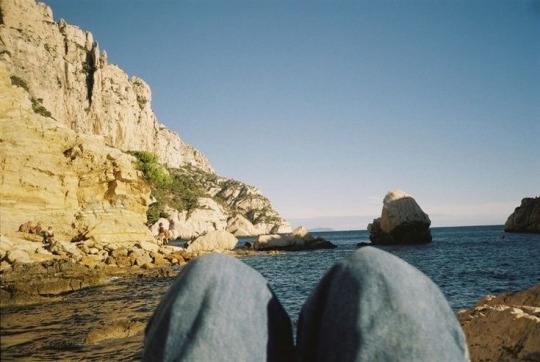
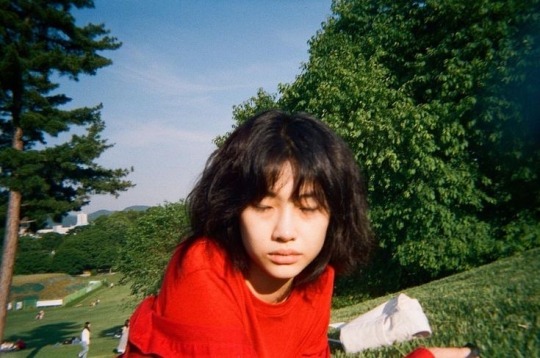
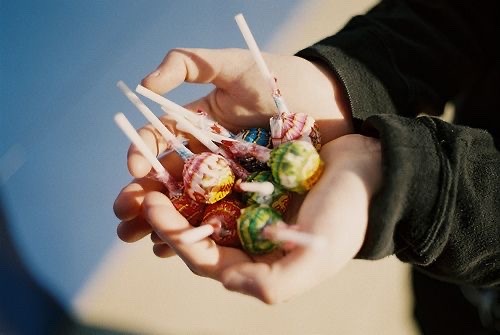
𝓒𝐇𝐀𝐏𝐓𝐄𝐑 𝐓𝐖𝓞: 𝓝𝐞𝐰 𝓕𝐫𝐢𝐞𝐧𝐝𝐬
pairing kang sae-byeok x fem!reader | wc: 1.8k
summary -> the kids being preoccupied left you room to become friendly with the newcomer, kang cheol before his sister makes an appearance for a quick visit. warnings -> injuries (?)
( beneath the quiet masterlist )

12:33PM
𝐖𝐎𝐑𝐊𝐈𝐍𝐆 𝐎𝐕𝐄𝐑𝐓𝐈𝐌𝐄 gave you more time to spend with the kids while your mother was out running errands. You never had a full grasp on what she did on those errands, always returning with more junk than she had left with, always leaving the bulk of it all in the trunk of her car for you to carry in. Even at such a young age you could feel your bones aching and your back practically begging for a break as you carried in pile after pile of magazines. Never knowing what she did with them, or why she had so many, but also never being curious enough to ask.
A huff of exhaustion yet relief left you after plopping the last stack of magazines in front of her door, twisting and turning parts of your body to release any tension before you went back to supervising the kids. Turning your head in a slow circle until your eyes landing on the halfway open door to the art room. The top of a head picking in and out of the crack, scattered papers with markers all over the floor. It didn't take you long to realize it was Cheol. After breakfast and a short lesson, he asked to retire to his room because he wasn't feeling the best, not in need of a nurse or tea that you offered but just wanting to sleep.
You knew how hard of an adjustment it must've been for him to be dropped off in the middle of his adolescents. So many questions could be going through his head, mainly wondering why? And as you think back to his older sister you can't help but wonder what type of hardship they might've been through at such a young age.
The bleak weariness that overtook their forms showed that the past hadn't been kind to them, and even in the safety net of an orphanage they still kept their walls up high. Being self-preserved and reluctant to bond to those around, as if at any moment the world around them would start to crumble, and their efforts to build anything other than a simple acquaintanceship would be futile when it's all said and done.
Without a second thought you made your way over to him, giving the crowded play room a mere glance to make sure the kids were behaving appropriately before making your way inside the art room.
A few gentle knocks were placed on the door before you slowly made your way in, even with the intention of being subtle, you still managed to frighten him, his body jumping before he backed into the leg of a table. A junction of apologies leaving your lips as you slowly made your way towards, your hands held out as you approached as if he was an injured animal.
"I just wanted to see what you were up to." you quietly whisper, bending down far enough to pick up a piece of a paper he colored on. His once rigid form slowly relaxed, scooting himself closer and closer to you when he realized you didn't pose a threat.
The picture messily drawn showing three people in front of a house standing and holding hands with big smiles. "Who's this supposed to be?" You asked, turning the page toward him, having the smallest hint of who it might be.
"Me, my sister, and my mom." he clarified, beginning to draw on another piece of paper, his eyes never leaving the page even as he dropped a marker to pick up another one. You didn't want to press the issue, thinking of all of the possible outcomes that could've led him to end up here, instead settling for a hum of approval and a meek "You draw very well."
A small smile creeped on his face at your compliment, the rapidly moving hand that sketched across the paper halting as he slowly looked up at you. "You wan' me to draw you?" his head slightly tilting to the side, his doe eyes gleaming with something adventurous.
You reciprocated his smile, before nodding, offering to draw him as well, leaving your mother to supervise the other group of rowdy children on her lonesome, you were sure she could handle herself.
As you drew each other on the floor of the art room, you exchanged your likes and dislikes, foods you hated and adored, and your all time favorite tv shows. Small laughs being exchanged between you two, while a light weight lifted off of your shoulders to see him fully relax into the atmosphere. His posture eased and his babbling nonstop, cutting himself off between sentences to tell another story than the other one he told, which was something you also did when you got too excited.
Just as he was in the middle of telling a story, two short and rapid knocks broke through the tranquil bubble created between you two. Looking over your shoulder, your eyes slightly widening at the sight of his sister, standing placid, her face wearing the same exhausted yet impassive expression she wore last time.
Cheol gasped before lifting himself off of the floor and running towards her, his arms locking around her waist as one of her hands rested on the top of his head, messily combing her fingers through his flat locks. "We were just talking about you, noona!" he exclaimed, his toothy grin looking up at her as he rested his chin on her lower abdomen, arms still locked tightly around her waist.
A flash of confusion crossed her face, her eyebrow lifting up only for a split second before returning to her regular stony composition. "You were?" she asked, the tilt of her head similar to the way Cheol had completed the action earlier. Although different in looks you could tell they were related by the allusive mannerisms, even the way they talked occasionally reminding you of the other.
You lifted yourself off of the floor, dusting the sides and back of your pants off before slowly making your way over. "He was just telling me a story on how you taught him how to ride a bike." you clarified for him. A grin creeping on your face as you recalled him telling you she wasn't the best teacher at the time, the longest she'd been on a bike no longer than 10 seconds as she always ended up losing her balance.
Sae-byeok's gaze fell from yours to her little brothers, a ghost of a smile tugging on her lips for a split second before disappearing as her head turned over to the ruckus of the playroom next door.
You didn't mean to stare, but your eyes couldn't help but lock onto the visible scar on her neck, something you hadn't noticed the first time you saw her. Your head tilting the slightest to gaze at it. It was a faded pinkish color, a whisper of a tragedy etched into her skin for life, just barely being covered by the stray hairs falling from her pulled back low ponytail.
It felt as if you were underwater, falling into a trance of your eyes trailing the visible parts of her body to see any other unmarked scars that you had missed at first glance. Her hands barely concealed yet the scratches and traces of dried blood on the knuckles shined a brighter light on who she was. Her fingers long, slender, and littered in bruises, making you wonder what she could've done to sustain such injuries.
The way her hands consciously slipped deeper inside the sleeves of her jacket to conceal her hands didn't go unnoticed, and as if you were pulled from the suffocating waves of the ocean, you heard Sae-Byeok's voice come into view.
"Why aren't you playing with the other kids?" she asked, your eyes catching hers for a second before they diverted to Cheol who was still gripped onto her tightly. He hummed in response, not wanting to tell his sister that he was afraid.
Afraid of what the other kids would think about him, how they would treat him if he spoke too much, and if they'd see him differently if he was truly himself.
"Um, I just wanted to color." he murmured, his eyes avoiding his sisters, his hands resorting to latching onto her wrists, swinging them back and forth to keep himself occupied from having to meet her gaze, knowing that she can read him like a book.
You saw Sae-byeok tense, her face cringing at the sudden pressure around her wrists, but quickly masking it with a frown. Her mouth opened to question him but was abruptly interrupted by Cheol. "Oh, Miss Kim, Can I show noona what we were drawing together?" He suddenly asked, his head turning towards you, a hopeful gleam in his eyes.
You nodded, your eyes abashedly meeting Sae-Byeok's for a split second. "Of course, and if you want you can color with your noona in the visitor area." you offered, already gathering the sheets of paper off of the floor and bending down to throw markers back into their bin.
You smiled as he quickly nodded his head up and down, quickly scattering down to the floor to help you clean the mess you made together. "Will you join us?" Cheol suddenly asked after gathering the multitude of supplies, holding the bin of coloring items with both of his hands, occasionally using his knee to keep it from slipping.
You opened your mouth to answer but was soon interrupted by the yell of your mother calling your name. A small sorrowful smile making its way onto your face, "I don't think I'll be able to..maybe some other time, yeah?" you query, holding the now neat stack of papers close to your chest.
Cheol nodded, his smile still never slipping as he made his way back over to Sae-Byeok.
You held the papers out for her to take, not wanting to pile too much onto Cheol, only then being close enough to realize the noticeable height difference, she practically towered over you, her head having to slightly tilt down if she wanted to maintain eye contact.
Her eyes stayed trained on yours, eyelids fluttering at the smallest graze of her fingertips against yours as she took the drawings away from you. A mumble of what you assume to be a 'Thanks' was heard as she turned her back towards you, her and Cheol treading down the hall to the visitors area to continue coloring together, faint murmurs of Cheol's voice being heard as he told Sae-Byeok how good of an artist you were when you were merely average at best.
As they turned the corner you couldn't help but feel your heart skip a beat at Sae-Byeok's departing glance at you over her shoulder, her eyes flickering towards yours like a magnet before she disappeared into the halls of the orphanage. She evidently wasn't one for words, speaking her own secret language with her eyes, you just had to figure out what she meant.
Where did you come from Kang Sae-Byeok?

' 𝒕𝒂𝒈𝒍𝒊𝒔𝒕 ' 📷 : @miabcuzz @twicesuuui @kissyslut @kritkalhit @st4rcs @dumbbellxo @theforestchoseme3 @wlvlurvsfimmia @genshinenjoyer @theweirdanimation @ch-3-rry @nenukkjhj @giaqnn @crack240 @pookalicious-hq @laurenkenss @sheinhamood @pooksterrr @bbynai @diorzs @beaaluv @colorfulkittenperfection @yourl0caltrash @kidicaruslover911 @sherryuki-callmeyuki @i0nic02 @knfthxv @mina-has-been-here
#kang sae byeok x fem!reader#kang sae byeok x reader#kang saebyeok#kang sae byeok#kang saebyeok x reader#kang saebyeok x fem!reader#squid games x reader#squid game imagines#squid game x y/n#squid game#squid game x reader#squid game x you#squid game x fem!reader
200 notes
·
View notes
Text
my boo | art donaldson x tashi duncan x patrick zweig x reader
warnings: SMUT 18+, injuries, stanford!patrick au, i didn't proofread this but from what i did read i hate it

It started before anyone had the words for it.
Before they were names on magazine covers. Before the courts smelled like blood and money. Before everything got complicated.
Back when it was still sunscreen and sweat and empty courts lit up too late at night. Back when you were just kids in too-big sweatshirts, shoulder to shoulder in lecture halls, trying not to fall asleep after early practice. Back when you could still pretend that everything didn’t mean something.
Stanford was a blur of red brick and sun-glare, of cafeteria coffee that tasted like dishwater, of skipping class to sit on cracked bleachers and watch Art practice alone because Tashi had a knee wrap and Patrick said he was too hungover. It was pretending your heart didn’t leap when one of them looked at you longer than they should have. It was Art pressing a Gatorade into your hand without asking. Tashi pulling your braid loose and doing it over again just because she said it was crooked. Patrick stealing your ChapStick and never giving it back, mouth quirked like he knew it meant something.
You didn’t mean for it to become what it did. No one ever does.
But it did.
And for a while, it worked. Messy, yes. But full of something real. A closeness you couldn’t explain if you tried. Nights curled in bed together after team dinners, Tashi tracing the shape of your collarbone, Art half-asleep at your back, Patrick on the floor with his headphones on and a knee bouncing like he couldn’t stop moving even when he wanted to. Kisses shared and swapped like secrets, the lines between them blurring so fast you forgot who started what.
You loved them. All of them. Differently. Fiercely. You didn’t pick favorites.
Not until you had to.
Because eventually the hurt came. The ego. The pressure. The match losses that felt like betrayals. The rumors. The way Tashi stopped calling you first. The way Patrick kissed you like he was mad at you for knowing too much. The way Art said I don’t want this anymore with his eyes three months before he said it with his mouth.
And when it shattered, it shattered for good.
At least, that’s what you told yourself.
Until New Rochelle.
But that came later. Long after the last smashed racket. Long after the locker room door slammed so hard it cracked. Long after the last look from Tashi across the net, sharp and wet-eyed and full of something that could’ve been hate if you hadn’t known her heart.
Before that—
There were still long afternoons where Patrick would fall asleep face-down on your Econ textbook in the quad, sunlight haloing his hair and sweat pooling beneath his cheek. Still early morning practice drills where Art would grab you by the waist mid-jog and spin you in a full circle just to make you laugh. Still nights when Tashi would pull you into her dorm bathroom to sit cross-legged on the tile while she painted your toenails and talked about Wimbledon like it was already a foregone conclusion.
They hadn’t broken yet.
And neither had you.
But the real break came later.
It happened during the championship final.
You still remember the heat radiating off the court, the shimmer of sweat on your skin, the way the air felt like it was holding its breath. You were playing the best tennis of your life—sharp, clean, focused—until you weren’t. Until your knee gave out with a snap that echoed louder than the crowd. You dropped hard, the racket tumbling from your hand, your mouth open in a silent scream as the pain split you in half.
Tashi was the first one to run to you. Art was right behind her. Coach was yelling something from the sidelines, but all you could hear was the pounding in your ears and the tremble in Tashi’s voice as she cupped your face, begging you to say something, anything.
Patrick wasn’t there.
He hadn’t shown up.
Not to the match. Not to the bench. Not even to the edge of the crowd. And no one knew why.
You were carried off the court. Tashi’s hand never left yours.
And it was in the trainer’s room, with your knee wrapped and ice burning through the swelling, when Patrick finally appeared. Out of breath. Hair a mess. Eyes wide, like he wanted to say something but didn’t know how to start.
"I didn’t know it was—" he began, but Tashi was already in front of you, standing like a shield.
"Get the fuck out," she said.
Art stood, jaw clenched. "Seriously, man. Now? Now you want to show up?"
Patrick’s voice cracked. "I made a mistake."
You didn’t say anything.
You wanted to. But the pain was too sharp, and not all of it was in your leg.
"I just—I didn’t think—"
"No," Tashi snapped. "You didn’t. You never fucking think when it matters."
Patrick looked at you. Just you.
"I’m sorry," he said, softer.
But before you could answer—before you could even blink—Art stepped forward and shoved him.
"Get the fuck out, Patrick!"
Patrick blinked like he couldn't believe what just happened. Maybe he couldn't. Maybe none of them could. But Tashi was still shouting, her voice rising with every breath, anger bleeding into grief, into panic, into the sharp, high-pitched register of someone who’s breaking and trying not to. Art was pacing now, fists clenched at his sides, glaring holes through the floor when he wasn’t glaring at Patrick.
And you were still on the table.
Wrapped in gauze and ice and painkillers, your voice caught behind your teeth. You tried to speak—twice. The first time, it was nothing but a rasp. The second, a barely audible, "Stop."
They didn’t hear you. Or they did and ignored it. Maybe it was easier that way. Maybe it was easier to be angry than to admit how afraid they both were. How much it scared them to see you fall.
"Tash—" you tried again, a little louder this time, but she was already mid-sentence, something about loyalty, about letting people down, about how she knew Patrick would flake when it mattered most.
"I said I’m sorry!" Patrick’s voice cracked, and this time it wasn’t defensive. It was raw. Unprotected. "I was coming—I didn’t mean to—"
"You weren’t there," Art snapped, stepping forward again like he might shove him twice. "She went down and you weren’t there. You don’t come back from that."
"Stop," you said, finally loud enough to make the room pause.
The silence that followed was brittle.
Your voice shook. "Just… stop. Please."
But it was too late. Patrick was already backing away. Tashi's jaw was set like stone. Art wouldn’t even look at you.
And the ache in your chest was suddenly worse than the one in your leg.
Because the room didn’t soften. No one moved to you. No one listened. Tashi was pacing now, muttering under her breath, the words sharp-edged and crumbling. Art had turned away completely, both hands braced on the wall like he was trying to hold the whole world up on his own.
You shifted, wincing, pulling the blanket tighter around your lap. You said their names—quiet, careful, begging. But neither of them turned. Neither of them even flinched.
"Tashi," you tried. "Art. Please."
Tashi turned first, but the look on her face was so twisted with anger and something deeper—betrayal, maybe—that you almost wished she hadn’t.
"You don’t get it," she snapped. "You’re defending him right now? After everything?"
"I’m not defending him," you said, and it came out sharper than you meant, desperation crawling up your throat. "I’m asking you to stop turning this into something it doesn’t have to be."
Art finally looked at you, and it broke something. Because his eyes didn’t soften. They hardened. Like the fact that you weren’t angry enough made you guilty by association.
"You think we’re just going to pretend this didn’t happen?" he asked. "That he didn’t leave you alone out there?"
"No," you whispered. "I think I’m the one who was left. By all of you."
Tashi recoiled. Art’s jaw clenched. No one spoke.
And it was the last thing you said to them for a very long time.
The years that follow are quieter. Not because there’s nothing to say, but because you don’t know who would listen.
Tashi and Art stay together. You see it in headlines before you hear it from anyone else. A doubles tournament in Paris. A Nike ad. An engagement post with a caption that says something about teamwork and timing—and you have to close the app before you look too long at the way his hand rests on her waist like it belongs there.
Patrick comes back. Eventually. Not in the way you expect, and not all at once. He finds you in a coffee shop in Atlanta, three years after you graduated, and it’s awkward at first—mismatched greetings and stilted words. But it smooths over. Not back to what it was—never that—but something gentler. Something knowing. The two of you talk about anything but tennis. Sometimes you go months without hearing from him, but when he shows up, he stays for a while.
He never got back to where he was. Last time you checked, he was ranked 271st in the men’s circuit. Still playing, still pushing, but something in him never quite healed. Maybe it was never just about the match.
And you—you had to learn how to live outside the game. For so long, you were the top player. The one they all measured themselves against. And then, in a single second, you weren’t. You tried physical therapy. You tried coaching. You tried disappearing. None of it worked the way tennis used to.
Now, you live in a city where no one recognizes you, and some mornings you jog past courts with peeling lines and wonder if anyone remembers. If they still say your name like it used to mean something.
Art and Tashi are at the top now. They’ve won things you dreamed about together. Their names are printed in gold on posters in airports.
Yours isn’t.
But you breathe. You sleep. You wake up and drink your coffee and sometimes you smile at the quiet. You’re not whole, but you’re still here.
And that has to count for something.
New Rochelle wasn’t supposed to mean anything. You didn’t even know the tournament was happening until the third day. You weren’t paying attention—not to the draws, not to the rankings, not to the sport you’d trained your entire life to love. You’d spent too many years trying to forget the sound of a hard court under your shoes, the stretch of your serve, the way your name used to echo when it was announced.
But then Patrick called.
You let it ring twice. Then again. You almost didn’t answer. But something in your chest moved—familiar and unfinished—and you picked up.
"Hey," he said, voice scratchy with early morning. "You got a second?"
He didn’t ask how you were. He didn’t need to.
"What’s up?" you said, already knowing it wasn’t nothing.
He hesitated. You heard the shuffle of fabric, the faint buzz of static like he was walking through a hallway. "He’s here."
You didn’t ask who. You didn’t have to.
"He’s playing?"
"Last-minute wildcard. Challenger bracket. They’re trying to get him back into rhythm or something." Patrick’s voice softened, like it hurt him to say it. "He’s in the final."
You closed your eyes.
"Against you?"
"Yeah."
You didn’t say anything.
"He doesn’t know I called," Patrick added. "I just... I thought maybe you’d want to be here."
You looked down at your hands. At the scar on your knee. At the ghost of something that used to be everything.
"I don’t know if I should," you said.
Patrick was quiet for a long moment. Then—
"Maybe not. But I think he needs you."
And somehow, that was the thing that broke you.
You packed a bag before the call even ended.
You were on the train before you let yourself ask why.
Patrick meets you at the hotel.
You don’t expect him to be there—you figured you’d check in, maybe grab something terrible from the vending machine, spend the rest of the evening staring at the ceiling. But there he is, leaning against the far wall of the lobby like he’s part of the decor. His hoodie is clean but frayed, a duffel bag slouched at his feet like even it’s tired.
"You came," he says. No smile. Just that familiar half-lidded look like he’s waiting for something to go wrong.
You nod. "Yeah."
He doesn’t say anything for a beat. Then, "I wasn’t sure you would."
"Neither was I."
The silence stretches between you—thick, unspoken things settling into the carpet between your shoes. And then he exhales, like something's uncoiling in his chest.
"I’m not staying here," he says, nodding toward the check-in desk. "Can’t afford it. Been… couch-hopping. Tinder dates, mostly." He shrugs, like it’s just a fact. "Some of them let me crash. Others don’t. Got lucky with one last week—place had a Keurig."
You blink. "Patrick."
He just shrugs again, this time with a smile that doesn't touch his eyes. "It’s not that bad. I’m used to making things stretch."
You don’t know what to say. Not really. So you just ask, "You want to crash with me tonight?"
He looks at you then—really looks—and you see the flicker of pride there, the instinct to say no. But he’s tired. And he’s been alone for too long.
"There’s only one bed," you add, voice quiet.
He huffs a laugh. "Wouldn’t be the first time."
You don’t say anything else. You just grab your key from the counter and nod for him to follow.
And when you open the door and toss your bag onto the single, wide bed, neither of you pretends it’s just about a place to sleep.
The room is quiet for a long time.
Too quiet. The kind that stretches. The kind that vibrates just under your skin. You lie with your back to him, staring at the beige curtain, tracing the way the streetlight outside cuts through the fold in the fabric. You think he’s asleep, until he says, low and dry, "You look like shit."
You let out a tired laugh, half buried in the pillow. "You look worse."
He hums like he agrees. A rustle of sheets behind you, like he’s turned onto his back. "This is weird, right?"
You nod even though he can’t see it. "Yeah."
More quiet. The kind that feels heavier the longer it lasts.
"I keep trying not to touch you," he says finally.
You exhale. "Same."
Patrick shifts again, then says, softer, "It still hurts."
You roll onto your back, eyes tracing the ceiling now. "What does?"
He doesn’t answer right away. "The match. What happened after. You. Them. All of it."
Your chest tightens. "It wasn’t just you, Patrick."
"I know." A beat. "But I never said sorry the right way. I still don’t think I know how."
You turn your head to look at him. He’s on his side now, eyes on the ceiling like if he meets your gaze, it’ll be too much.
"Do you ever think about them?" you ask.
"Every day."
He glances at you, jaw tight. "Do you still hate me?"
You don’t answer. Not right away. Then, "No. I never did."
Another pause. His voice comes out hoarse. "I think about you all the time. You in the trainer’s room. You trying to speak and none of us letting you."
You don’t know who moves first.
But suddenly he’s close. Closer than he should be. His breath is warm against your cheek. You don’t kiss him. Not right away. You just look at him and feel everything.
And when his lips finally press to yours—soft, slow, and unsure—you let them.
Because there are still too many things that never got said.
And some of them need to be felt first.
The kiss starts hesitant—barely more than breath—but it deepens fast. Not rushed, not frantic, but urgent in the way memory always is. His hands come up to cup your face like he’s afraid you’ll vanish if he doesn’t hold you steady. And you let yourself be held.
"I’m sorry," he murmurs into your mouth, forehead pressed to yours. "I should’ve been there. I should’ve run faster."
You shake your head, blinking past the ache in your chest. "I should’ve screamed louder. I should’ve made them hear me."
He pulls back just far enough to look at you, eyes glassy, jaw clenched like he’s trying not to fall apart. "I thought if I stayed away, it would hurt less."
"It didn’t," you whisper.
His mouth is on yours again before either of you can breathe another word. This time it’s heavier. Hungrier. His hands slide beneath the hem of your shirt, reverent and shaking. Yours are already at the waistband of his sweats, needing to feel him, to tether yourself to something that isn’t just memory.
Clothes come off in pieces, half-folded, half-forgotten. You end up straddling him in the low light, the heat between you slow-building and aching. You pause, just for a second, hands on his chest, breath caught.
"Patrick," you say, voice thin and steady, "I need this to mean something."
His hand finds your waist. "It already does."
When you sink down onto him, it’s not about sex. It’s a slow, aching reunion—body meeting body, the stretch of him inside you sharp and perfect, your breath catching in your throat as you bottom out. His hands grip your hips like he’s afraid you’ll leave, like he’s still not convinced this isn’t a dream. You don’t rush it. You sit with it. Let yourself feel every inch, every tremor of want beneath the grief.
You start to move in slow, careful rolls of your hips, your palms flattening against his chest for balance, for closeness. His eyes flutter shut, mouth parted, a low groan escaping as your rhythm builds. It’s not slick or easy—it’s raw. It’s tender. It’s everything you’ve both buried pushing to the surface with every shift of your bodies.
"Patrick," you whisper, barely audible, "I should’ve screamed louder. I should’ve made them stop."
He shakes his head, breath stuttering. "You shouldn’t have had to."
His thumb brushes your thigh, traces the curve of your waist, and you ride him deeper, slower. He meets you now, hips rising, trying to give you everything. You lean down and kiss him, slow and wet and open-mouthed, swallowing his sounds as he gasps beneath you.
"I thought if I left," he murmurs, "it would hurt less. Losing you... it was like cutting off my own arm."
Your forehead presses to his. "I still feel it. Every day."
His hand curls around the back of your neck, pulling you closer, as if he could disappear into you. You grind down harder and he chokes out your name, eyes wide and glassy.
You can feel it starting to crest—your whole body coiling tight, the ache twisting higher, your walls fluttering around him. You cry out softly as you come, clinging to him, your breath broken and hot against his throat.
He follows with a gasp, hips stuttering, arms locking around you like he’s bracing for impact. His mouth finds your shoulder. Your jaw. The center of your chest. Like if he kisses you enough, the past will stay gone.
And for a long, trembling minute, it does.
After, your bodies remain tangled. Chest to chest. Mouth to mouth. There’s sweat and breath and something like peace. Like maybe this is the start of forgiveness.
Just breath.
Just warmth.
Just you, and him, and the weight of everything you never got to say falling away in the dark.
You wake first.
The room is dim, touched only by the gray haze of morning trying to press through the curtains. Patrick’s still asleep beside you, one arm slung over your waist, the slow rise and fall of his chest steady against your back. He’s softer like this. Younger. The lines in his face aren’t as sharp. He looks like someone who didn’t break everything he touched.
You don’t move. Not at first. You just let it hold—this warmth, this quiet, this rare illusion of stillness. Eventually, he stirs, blinking at the ceiling before he turns to look at you.
"Hey," he says, groggy.
"Hey," you answer.
The silence between you is full of things that don’t need to be said. What happened last night. What it meant. What it didn’t fix.
Patrick stretches, the sheets pulling with him. "You staying for the match?"
You nod. "Wouldn’t have come if I wasn’t."
He watches you for a long second, then gives a faint smile. "You might want to get there early. Art’s been locked in. You know how he gets."
You do. All precision and pressure. All expectation wound tight around a perfect serve.
"I know."
Patrick shifts to sit up, running a hand through his hair. "You should talk to him."
You pull the sheet tighter around your chest. "Do you think he wants that?"
"I think he’s wanted that since the day he left the trainer’s room."
You look down at your hands. At the quiet ring of light where it spills through the curtain. "I’m scared."
Patrick doesn’t try to fix that. He just nods. "Yeah. Me too."
You sit with that for a while. Let the quiet settle. Then you shower, dress, and walk to the venue like it’s something ordinary—like your entire past isn’t waiting to collide with you the second you step through those gates.
The stands are already half-full when you get there. You find your seat in the second row—close enough to see the way the court glints beneath the sun, but not close enough to draw attention. You’re just another spectator. Or at least, you try to be.
But not to her.
Tashi finds her seat a few minutes after you do, scanning the rows like she’s looking for someone. She doesn’t see you at first—not until she turns to sit and her eyes catch on yours. Her whole body stiffens like she’s been struck. Her fingers go slack on the strap of her bag.
You don’t move. You don’t smile. But you hold her gaze, steady, as if you never left it at all.
Something shifts in her expression—like grief, like regret, like recognition. Then she’s moving again, walking straight over, court lines be damned.
She hesitates. And then, to your surprise, she slides into the empty seat beside you. There’s no dramatic gesture. No whispered greeting. Just her presence, palpable and unsure, like sitting next to you takes more courage than the whole stadium behind her.
"I didn’t think you’d come," she says, voice low.
"Patrick told me," you reply.
She swallows. "I should’ve—years ago, I should’ve said something. I just didn’t know how."
"Me either."
The two of you just look at each other for a moment. So much time between you, and none of it thick enough to stop this moment from breaking through.
"I’m glad you’re here," she says. And when she reaches for your hand, you let her hold it.
Just for a second. Her fingers curl around yours, tentative, like a question she’s never been brave enough to ask. You don’t pull away.
Then the announcement blares over the speakers.
Art Donaldson steps onto the court.
And everything else goes quiet.
Art moves like a blade when he’s locked in—sharp, ruthless, a little desperate. You recognize it immediately, the way he bounces on the balls of his feet between serves, the way his toss is a little too high, the way he grits his teeth after every rally, win or lose. It’s not focus. It’s hunger.
Patrick steps onto the court with less ceremony. Slower, heavier. He rolls his shoulders once. Twirls his racket loosely in his hand like it’s too light to matter. But you can tell he’s wired tight underneath it. Every muscle braced.
The match starts hard.
Art takes the first game with a vicious serve that skims the line so close you think the umpire might call it out. Patrick barely reacts. Just tosses the ball up for his own service, muscles rippling, and answers with an ace that whistles past Art's ear.
It's brutal. Beautiful, in the way collisions are. Two different kinds of pain meeting at full speed. You can see it in every step, every swing. Neither of them is here to play nice. They're here to bleed.
By the second set, the sun hangs heavy over the court. Shirts stick to skin. Serves slow, just a fraction, but neither gives ground. The audience leans forward with every point.
Beside you, Tashi’s fingers tighten around yours without her even realizing it. You don’t pull away. You squeeze back, grounding both of you.
It’s 5–5 in the final set when it happens.
Art chases down a wide serve—full tilt, full commitment, his entire body outstretched. He plants hard on his left leg, bracing for a tight pivot at the baseline, and you see it—the misstep, the torque, the way his knee twists wrong.
It happens fast but feels like slow motion.
You recognize the sound before it even reaches the stands: that awful, hollow pop.
Art crumples, his racket flying from his hand, his mouth open in a silent cry. The exact way you remember falling. The exact nightmare you’ve replayed a hundred times behind closed eyes.
You and Tashi both shoot to your feet, hands gripping each other’s so tight your knuckles ache.
But before anyone else can react, Patrick drops his racket and sprints across the court. He catches Art before he hits the ground, arms locking around his torso like instinct, like prayer.
The entire stadium holds its breath.
And in the split-second after the world stops spinning, Art’s eyes find yours.
He sees you.
The crowd blurs. The court fades. There’s only the two of you—two people who once knew each other better than anyone else ever dared to.
And in that instant, everything you lost, everything that broke, everything that still bleeds between you—it’s forgiven.
Not fixed. Not forgotten. But forgiven.
Art’s chest heaves. Patrick holds him steady, murmuring something into the space between them.
And then you and Tashi are moving—pushing through the rows, the crowds, vaulting down the stairs without thinking. Not as rivals. Not as strangers.
But as two people who loved him once—and maybe still do.
Running toward him like no time had passed at all.
You reach the court just as the trainers do. They're already kneeling by Art, one checking his pulse, the other stabilizing his knee with practiced, clinical hands.
Patrick steps back to make room but stays close enough that his shadow brushes over Art’s shoulder. He doesn’t meet your eyes as you skid to a halt beside him, breathless, heart hammering so hard it drowns out the noise of the crowd.
Art’s head lifts. Just slightly. Enough to find you again, standing there in front of him, real and wrecked and wide open.
He reaches for you without thinking.
Your hand is already there.
The trainer says something about a stretcher, about precaution, about taking no risks. But Art’s hand tightens around yours like he’s afraid the ground will swallow him if he lets go.
"I’m okay," he breathes, voice wrecked and raw. "I just—I felt it twist. It's not broken."
You nod, even though you’re not sure if it’s for him or for yourself.
Behind you, Tashi crouches too, hand brushing Art’s shoulder, her forehead pressed briefly to the side of his arm. Silent, grounding.
Patrick doesn’t move. Doesn’t speak. But you feel his presence, steady, the same way you used to feel it back when everything was still whole.
When the medical team starts lifting Art carefully to his feet, he winces, but he’s standing. Supported. Breathing. Alive.
And when he looks at you—really looks—it’s like no time, no trophies, no betrayals ever happened.
"I’m so sorry," he says, voice cracked open so wide you barely catch the words.
You don’t say anything back.
You just hold tighter.
Because maybe this time, none of you will let go.
The trainers usher Art carefully toward the medical room tucked beneath the stands. You, Patrick, and Tashi follow, a strange procession moving through the winding halls—silent but stitched together by something invisible, unspoken.
The room smells the same as you remember. Antiseptic and gauze and that cold metallic tang of adrenaline bleeding into the air. It’s smaller than you thought it would be. Maybe because you’ve grown, maybe because the fear inside you hasn’t.
Art sinks onto the edge of the exam table, hissing through his teeth as they peel off his brace and start prodding gently at his knee.
You hover. So does Tashi. So does Patrick.
The nurse murmurs words you barely hear—sprain, not tear, six to eight weeks, no surgery. Relief cracks through you so hard you sway on your feet.
Art sees it. His hand reaches out again—automatic—and you move into it before you think.
Your fingers tangle, clumsy, desperate.
And somehow you’re back there.
Back to the first time it was you on the table. Them yelling. Him gone.
Art looks up at you like he knows exactly where your head is. His thumb traces slow, careful lines along the inside of your wrist.
"I’m sorry," he says, voice low and wrecked. "For not hearing you. For letting you think you had to scream louder."
You shake your head, blinking fast. "I'm sorry for not fighting harder."
Tashi sits down on the floor by your knee, her hand curling loosely around your ankle, grounding you. Patrick leans against the wall, arms crossed over his chest, eyes shiny but fierce.
You could break right now. Or you could heal.
Maybe both.
Art squeezes your hand. "You were always enough."
You believe him.
This time, you believe him.
For a while, no one says anything. The trainers murmur quietly at the far end of the room, filling out paperwork, giving you space that feels both too big and too necessary.
Tashi shifts, drawing her knees up, her arm still looped loosely around your ankle. "We didn’t get married because it was perfect," she says suddenly, voice rough, breaking the heavy quiet. "We got married because we didn’t know how to live without the pieces of you and Patrick we still had."
You freeze.
Art’s thumb never stops moving against your wrist, but he doesn’t argue. Doesn’t flinch.
"We tried to build something out of the wreckage," he says, voice low. "Tried to make it enough."
Patrick doesn’t move from his place against the wall. But you can feel the way his breath catches.
"It wasn’t fair," Tashi whispers. "To you. To him. To ourselves."
You blink hard, staring at the worn tile floor, your chest splitting clean down the middle.
"We were trying to survive," Art says. "But we were never whole. Not without you."
Silence again, but it’s different now. Less brittle. More like the kind that waits for something new to grow.
You squeeze Art’s hand. You lean your shoulder against Tashi’s. You glance at Patrick, who watches you with something raw and open in his eyes.
And somehow, without saying anything else, all four of you stand together.
And you leave the stadium the way you should have left it years ago:
Together.
The hotel room is too small for everything you’re carrying.
And yet somehow it holds you. All of you.
The door clicks shut behind Patrick, and for a moment none of you move. You just stand there—four people stitched together by regret, by forgiveness, by the thin, trembling thread of hope you’re all too scared to name yet.
It’s Art who moves first. Still limping, still careful, but steady. He sits down on the edge of the bed and looks up at you like you’re something holy.
"Come here," he says, voice low and raw.
Your knees nearly buckle with how fast you obey.
Tashi’s hand finds yours again as you cross the room, her touch light but sure, like she’s anchoring herself to you. Patrick trails behind, quiet, reverent, his fingers brushing the small of your back as if to ask, Are you sure?
You are.
Art’s hands settle at your waist as you stand between his knees. His thumb drags slow, grounding circles against your hip bone. Tashi steps in close behind you, her body warm against your back, her breath feathering against your neck. Patrick kneels by your side, hands braced loosely on your thighs, waiting for you to breathe him in.
There’s no rush. No hunger. Only reverence.
Tashi presses a kiss to your shoulder first—soft, careful, as if asking permission. Art lifts the hem of your shirt with trembling fingers, eyes searching yours for any sign to stop. Patrick’s hands slide up your calves, your knees, anchoring you there like you might float away.
Piece by piece, they unwrap you.
Piece by piece, they make you feel like you’re being given back to yourself.
Your shirt falls away. Then your pants. Then the last of your clothing, until you’re standing bare in the low lamplight, their hands and mouths finding you with a kind of awe that makes your breath hitch.
Art kisses the inside of your wrist, where your pulse flutters fast and frantic. Tashi mouths at your spine, slow and reverent. Patrick presses his forehead to your stomach, breathing you in like a prayer.
They guide you back onto the bed like you’re something precious. Lay you out with the kind of care that makes your chest ache.
Art’s mouth finds yours, slow and deep, while Tashi’s fingers trace patterns along your thighs. Patrick’s hands are everywhere—your ribs, your hips, your throat, grounding you, holding you together as you start to come apart.
Soft hands. Soft mouths. Gentle, reverent touches.
You can’t tell whose hands are where, whose lips are whispering promises against your skin. It doesn’t matter. All you know is that you’re full of them. Surrounded by them. Loved by them.
Tashi kisses you like she’s sorry.
Art touches you like he’s grateful.
Patrick holds you like he’s scared you’ll vanish.
And you let them.
You let them worship the spaces that once broke.
You let them build you back, one trembling breath at a time.
Hands map every inch of your body. Tashi’s lips brush lower along your spine, her mouth leaving wet, reverent kisses down the curve of your back. Patrick’s palms skate up your sides, thumbs tracing the underswell of your breasts before he leans up to take one soft peak into his mouth, his tongue circling until you arch into him with a whimper.
Art stays at your side, his fingers threading into your hair, his other hand stroking down your stomach with aching tenderness. He kisses you through it, kisses you so slow and deep you almost forget where you are, forget the way time moved without you for so long.
When Tashi reaches you again, her hands coax your thighs apart with infinite patience. She kisses the inside of your knee first—soft, almost apologetic—then higher, her breath ghosting over the sensitive skin there until you’re trembling for her. For all of them.
Patrick’s mouth trails lower, down your sternum, across your ribs, scattering kisses like they’re something sacred. His fingers tangle with Tashi’s briefly when they meet between your legs, a shared touch, a silent promise. You shudder when Tashi presses a slow, deliberate kiss to the inside of your thigh, and Patrick’s hand strokes the back of your calf in soothing counterpoint.
They take their time with you. Worshipping every part of you with lips, hands, mouths, the bed creaking under the weight of so much tenderness. Art murmurs into your skin, praises you, calls you beautiful, necessary, wanted.
When Tashi finally presses her mouth against the aching center of you, you sob her name into Art’s shoulder. She works you with a slow, devastating rhythm, her tongue tracing lazy circles while Patrick kisses your temple, your jaw, your shoulder, grounding you, anchoring you to the earth.
Art’s hand holds yours the whole time.
It builds until you’re gasping, clutching at anything you can—Patrick’s wrist, Tashi’s hair, the sheets, Art’s hand in yours—and when you break apart, it’s not sharp. It’s soft. It’s endless. It pours out of you like morning light through an open window.
They hold you through it, through every shudder, every broken gasp. They murmur to you, kiss your damp cheeks, trace lazy patterns across your heated skin.
And when you finally catch your breath, they don’t let you go.
They stay.
That’s all you ever wanted.
And somehow, in the hush between heartbeats, it’s enough.
-----
tagging:
@kimmyneutron@babyspiderling @queensunshinee @hanneh69 @jamespotteraliveversion @glennussy @awaywithtime @artstennisracket @artdonaldsonbabygirl @blastzachilles @jordiemeow
#a writes#this is terrifying#tashi duncan x reader#patrick zweig x reader#art donaldson x reader#challengers smut#challengers#challengers fic#challengers movie#art donaldson#patrick zweig#tashi duncan#tashi duncan smut#art donaldson smut#patrick zweig smut#challengers 2024#challengers x reader#atp x reader#atp x you#tashi duncan x you#art donaldson x you#patrick zweig x you#Spotify
106 notes
·
View notes
Text
Writing Notes: Blackout & Erasure Poetry

Poetry is one of our most ancient forms of creative writing, used to convey strong emotions, striking imagery and ideas about the world. Certain forms of poetry, like the haiku or sonnet, have been around for centuries. Other styles, like blackout and erasure poetry, are recent developments that represent the constant evolution of an age-old art form.
Erasure poetry - a type of found poetry in which the poet takes an existing source text and creates their own poem by erasing, redacting, or otherwise obscuring the words in the original text. The resulting text of the final poem can be arranged into lines or stanzas, or it can remain as it appeared on the original page of text.
Blackout poetry - a subcategory of erasure poetry. In a blackout poem, the poet uses a black marker, permanent marker, or Sharpie as a redaction tool, blacking out the original text until a new work is formed. The combination of new meaning derived from the remaining text as well as the aesthetic quality of the redactions create a type of visual poetry. Blackout poets often use old books, newspaper articles, or pieces of paper to make blackout poetry.
How to Write a Blackout Poem
Blackout poetry can be a great way to open up new creative writing pathways, work through writer’s block, or begin an original poetry collection. Here are some simple steps you can follow to create your own blackout poems:
Choose your source material. Your source material can be anything: a non-fiction book, a magazine article, a copy of yesterday’s copy of the New York Times, or even your middle school yearbook. All that matters is that your source material has plenty of text to redact and manipulate.
Examine the page. Look at the text. See if there are any words or phrases that jump out at you. It might be helpful to identify one or two anchor words—that is, words that seem particularly striking or meaningful for you to build your blackout poetry project around. Create a box around your anchor words to separate them from the rest of the text.
Identify connecting words. Once you have your anchor words, identify some other words that relate to the theme or idea of your anchors. It may also be helpful to select some connecting words, like conjunctions or prepositions, to unify your thoughts. Box those words as well.
Black out the rest. Now it’s time to make your mark. Use a Sharpie or black pen to black out all the words that aren’t your anchors or connectors. You can use straight lines, wavy lines, or thin connection lines. If you see your poetry as more of a visual arts piece, feel free to use your redaction pen to color in shapes or designs. You’re well on your way to creating your very own poetry journal of blackout poems.
Examples of Erasure Poetry
Doris Cross is thought to be one of the first to employ the erasure technique in poetry with her 1965 “Dictionary Columns.” Other well-known erasure poems include:
A Humument by Tom Phillips
Radi Os by Ronald Johnson
Nets by Jen Bervin
I Am Not Famous Anymore by Erin Dorney
The ms of my kin by Janet Holmes (adapted from the poems of Emily Dickinson)
Examples of Blackout Poetry
A Humument by Tom Phillips (which features elaborate painted designs on the pages of a Victorian novel)
Newspaper Blackout by Austin Kleon (a collection of newspaper blackout poems)
The O Mission Repo by Travis Macdonald (modified from the 9/11 commission report)
Source ⚜ More: Notes ⚜ Writing Resources PDFs ⚜ Found Poems
#writeblr#poetry#found poetry#dark academia#spilled ink#writing reference#literature#blackout poetry#writers on tumblr#writing prompt#erasure poetry#poets on tumblr#creative writing#writing inspiration#writing ideas#light academia#blackout poem#lit#writing tips#writing advice#writing resources
70 notes
·
View notes
Text
match point, chapter one.

↳ masterlist
⸺ In which Art and Patrick find themselves intertwined with the relationship of tennis superstar Tashi Duncan and her best friend, Lennon Caddel.

LENNON CADDEL WASN'T SCARED OF TASHI DUNCAN. I mean, she was her best friend. Sure, Tashi was rude to some, intimidating to most. But Lennon might have been the only tennis player at the US Open that year who wasn't scared of her. She had learned that following her best friend around like a lost puppy was the best tactic, and she had gotten pretty good at it. She loved Tashi, adored her. No matter how good of a tennis player Lennon was, sometimes even better than the superstar herself, she would blush and smile and shy away from any praise from her. Tashi was the one that everyone noticed. The way she dominated the tennis court, even in a duos match. The way she swung her braid over her shoulder post win, while her opponent was throwing a temper tantrum just across the net. Everyone was enthralled by her. And Lennon understood it because she was too.

"I'm just asking," Patrick said in between sips of Coke, standing in front of a poster of the stars of the evening, "If you had to pick, Lennon or Tashi?"
Art just shook his head. He and his best friend had been having this conversation for the better part of the day, beginning as soon as the girls finished their duos match. "I already told you dude," smacking Patrick on the back of the head, "I can't pick. I won't."
"Ever the feminist, Donaldson," the brunette replied turning his back to the posters and his friend. "It doesn't matter to me anyway. I'd let either of them fuck me with a racket."
Art tilted his head and raised his eyebrow, turning his neck to look at the boy next to him. A remark was on the tip of his tongue but he didn't get to start it before he was smacked on the shoulder and urged to look in the direction Patrick was pointing.
He turned his body fully, scanning the lawn to find what Patrick was so urgent he see. There, standing around a table, was the duo of the hour. Lennon and Tashi were only about 20 feet away from them. They were huddled together, whispering and glancing at... them? Art caught Lennon's gaze and Patrick caught Tashi's and the two girls looked away quickly, giggling to each other. Tashi pinched the outside of Lennon's arm, causing the girl to yell out an "Ow!" and laugh.
"Dude..." Art started, but Patrick was already in route. He was halfway to the girls before Art even had time to think.
Jogging to catch up, he was right by Patrick's side when he started with a "Hi."
The two girls froze before slowly turning around, Lennon's face was red and Tashi was biting back a laugh. "Hi," Tashi echoed.
There was a beat of awkward silence before Art jutted his hand out in Lennon's direction. "Art Donaldson," he introduced himself to Lennon before offering his hand to Tashi. Patrick followed suite with the introductions causing Tashi and Lennon to glance at each other and smile.
"We know who you are," the taller girl responded before bumping her best friend's shoulder.
"Oh yeah, we know all about Mr. Fire and Ice," Lennon winked and Art and Patrick were convinced they were going to faint right there. Tashi Duncan and Lennon Caddel were not only talking to them, but they knew them? This is what their dreams were made of.
"Uh..." Patrick started, unsure of how to respond before Art jumped in.
"You guys were fucking incredible today. Truly."
The girls bid their thanks and echoed their praises. The two best duos in junior tennis, magazines would call them.
It wasn't long before Lennon and Tashi's parents had to steal them away. Photos with their trophies and kissing each others cheeks were in order. Patrick and Art hung back, gazing at them in awe. Each boy had subconsciously chosen a girl that they had their heart set on, even if it wasn't obvious yet. You could see it in the way their stare lingered on one girl before moving onto the other. You could almost feel it in the air.

Patrick and Art lingered at the party for longer than they intended to. They wanted the opportunity to talk to the girls again; get one more glance at the expanse of Tashi's legs in her dress and the batting of Lennon's eyelashes. They were about to give up, but almost as if they read their minds, Lennon and Tashi descended the stairs and into the area where the boys were sitting. Patrick called them over, the duo whipping their heads in their direction before sharing a smile and heading over.
"You guys are still here?" Lennon asked, leaning into Tashi's side.
"Uh, yeah! Great party," Art responded. He was leaned forward, his elbows on his knees. He might as well have had hearts in his eyes.
The girls shared a glance, and echoed their thanks. Both Art and Patrick were practically drooling in their presence. It was cute to Lennon, cute and embarrassing to Tashi. She was used to this.
"Don't you guys have a final in the morning? That you should be... I don't know. Resting for? " She asked, trying to have a real conversation. She was tired of the praises for the day.
"I mean, yeah," The boys looked at each other and shrugged. "But we pretty much know how it's gonna go."
Lennon and Tashi shared a look. It was getting late and even if Art and Patrick weren't going to rest, they were.
"We should probably-"
"You should come by," Patrick interrupted.
Tashi bit back a laugh. "Come by where?"
Patrick and Art scrambled to their feet. "Our hotel, he means. I, we, would love to talk about tennis with you guys. And Stanford. And..." Art glances them up and down, "Whatever else you want to talk about."
Tashi glances at her friend, who's already looking at her. There's a silent plea in her eyes, one only her best friend would be able to pick up on.
But Tashi grabs Lennon's hand and begins to pull her away with her. "Goodnight," she winks. Lennon waves them goodbye and turns in the direction Tashi is pulling her. The boys can hear them bickering quietly as they leave.
"Was that a yes?" Patrick asks.
Art keeps his back turned to him, his gaze still following the girls as they leave. "It wasn't a no."

#art donaldson smut#art donaldson#art donaldson x reader#tashi duncan x reader#tashi duncan#tashi donaldson#patrick zweig#patrick zweig smut#patrick zweig x reader#challengers x reader#challengers#zendaya#mike faist#mike faist x reader#josh o’connor#josh o’connor x reader#05162024
214 notes
·
View notes
Text
Solaprunk Worldbuilding 1 - Eco-Cities
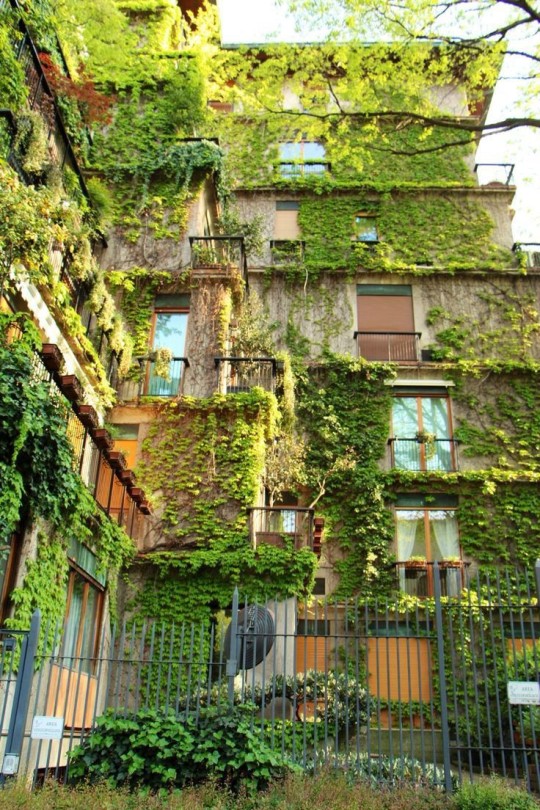
I've been working on worldbuilding a solarpunk setting for a slice of life story I'm writing and thought I'd share some of my ideas to maybe inspire other people!
In this world there is no government, no rules, no pressures or bad people. Just society working together after a global crash. A second chance to do things right this time.
(Mind the spelling mistakes)
Although far and few in between, big cities and towns still exist in this universe. However, they've all worked hard to keep it as eco-friendly as possible and still choose to live alongside and work with nature rather than fight it.
Trash and recyclingcans can now be found almost everywhere, giving no one an excuse to litter. Community composters are also a thing.
Skyscrapers, now skeletons of the old world, are draped in thick ivy vine walls, native flowering vines, moss panels, and vertical hydroponics that wrap around the metal and glass bones. These help regulate temperature, absorb CO2, and create habitats fors birds and insects.
Former office buildings and shopping centers like malls have been repurposed into shared living spaces, community markets, workshops, and event areas. Floors have open walls and breeze tunnels to reduce reliance on cooling systems. Those can be shut during colder months.
In taller districts, tree houses extend from reclaimed buildings, blending organically with planted rooftop forests. Rope bridges and wind-activated elevators made if recycled parts help people travel between vertical spaces.
Cities are completely walkable and don't require transportation. Streets are narrow and shaded with plant canopies. Most paved areas are soft permeable cobblestone or moss-tile paths that allow rain to soak through instead of pooling or flooding.
Painted murals double as maps - bold, hand-painted designs show landmarks, walking trails, tram routes, and local art projects. Updated regularly by volunteers.
Giant sculpted trees or mushrooms function ad rainwater collectors, solar lanterns, or even mist sprayers during hot days. Children often climb on them or gather nearby to play. They can also provide shade.
Metal "bike trees" hold dozens if free-to-use bikes, all maintained by volunteers. Bikes come in all colors and sizes, some decorated with flowers or art to reflect the community's personality.
Solar Trams glide quietly on narrow tracks. They're sleek but not flashy, designed with recycled metals and glass. Inside, seats are made from reclaimed wood, each with a small solar lamp or charging port. Solar Buses work in a similar fashion.
Public Plazas now have eco-escalators that are powered by pedaling like on a bike.
Interactive screens at intersections and stops show local events, weather and climate, community votes or messages, and tutorial videos on composting, repair, herbal medicine, or art-making. Digital marketing and advertisements are no more.
Most people carry small, solar-powered devices that have replaced phones called "Data Stones" - slate-like digital notebooks that sync to the city's mesh network. People use them for Journaling, mapping, music, or community messaging, but never for mindless scrolling. Digital use is intentional, not addictive.
The internet exists, but it's localized. Instead of one global net, each town or city has a mesh intranet. Communities upload and share stories, tech guides, magazines, songs, and documentaries- all accessible for free.
At every city node is a "Commons Booth"-a repurposed phone booth now used for small trades, gifts, or lost-and-found. You might find a hand-knit hat, seeds, poems in a bottle, hand-bound journals, or a small bag if dried herbs for tea.
Public parks host weekly workshops: mushroom log inoculation, fixing Guardianers, upcycling old tech, dyeing fabrics with natural materials, and crafting musical instruments from trash.
Fireflies are protected and welcomed into urban life with dedicated "nightlight gardens"- small glowing sanctuaries that bloom under moonlight (usually a mix of regular and bioluminescent plants). People sit quietly here, reading or singing. Festivals are celebrated not with fireworks, but light dances, candlelit parades, or bioluminescent art. It's also a romantic place for a date.
Children and adults alike use "Learning Loops"- open-air circles of benches and tree stumps near gardens and community spaces where mentors teach based on skills, not age. There's no formal school system. Learning is woven into life.
On a certain day each month, citizens volunteer to teach something for free-sailing knots, solar repair, compost chemistry, storytelling, mediation, bird language. The city slows down that day. It's treated like a holiday.
In addition to tire-posted Little Libraries (where people can take a book and leave one in it's place), entire alleys have been converted into "Book Gardens"- free libraries under pergolas or vines, surrounded by reading hammocks and native wildflowers.
Local businesses and shops are still a thing, but are not kept up by money. Money has no use in this world anymore. Businesses upkeep it themselves and will happily trade their wares for something in return. For example, a bakery can trade a cake for something in return like a jar of jam or something else. It's like that everywhere.
Citizens enjoy solar-charged cooking stoves, clean water from centralized purification systems, access to upcycled tech, 3D-printed tools, and digital artist hubs.
Markets overflow with herbs, handmade instruments, mushroom leathers, fermented goods, and hand-bound books from across the region. Some city dwellers specialize in creating high-tech eco-dafe goods to trade with the countryside.
Most people live in co-housing clusters or share entire floors of old skyscrapers converted into lush indoor gardens and social spaces. They might not know everyone, but each block has caretakers and community gatherings.
They're alive with creativity and innovation. Mural projects, street musicians using windows instruments powered by movement, and holographic poetry displays powered by pedals or solar generators.
With more people comes more variety in skills. It's common to find classes in herbalism, robotics, or solar carpentry happening daily in public courtyards.
The ideas are free to use for whatever you want or use for inspiration! All I ask is that you CREDIT ME! And feel free to send me an ask on more details to this lovely world :)
#plants#solarpunk#solar energy#ecofriendly#worldbuilding#writeblr#writing#writers on tumblr#a better world is possible#comfort#my solarpunk world
39 notes
·
View notes
Text
The Final Scores are in!
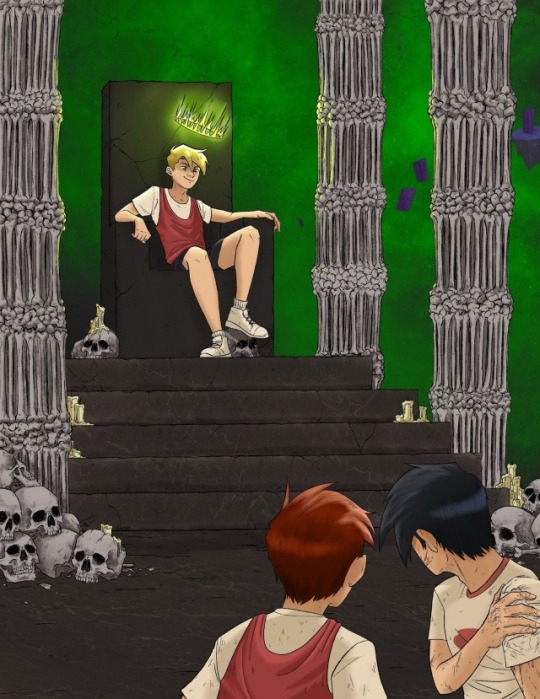
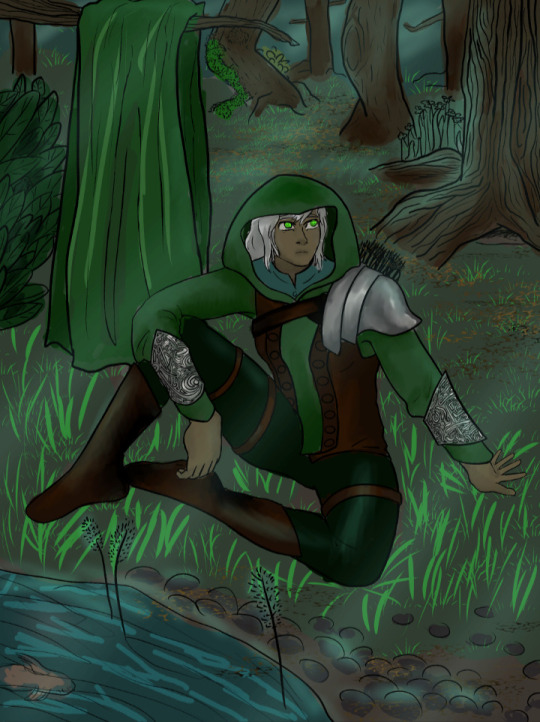
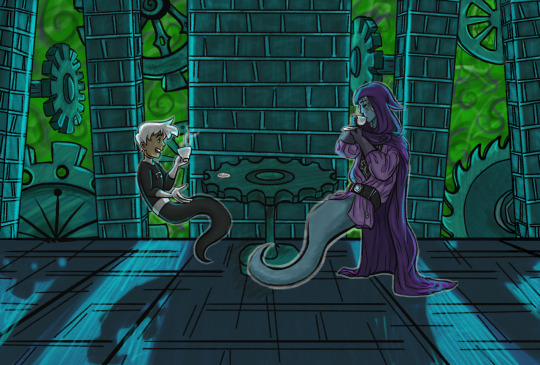
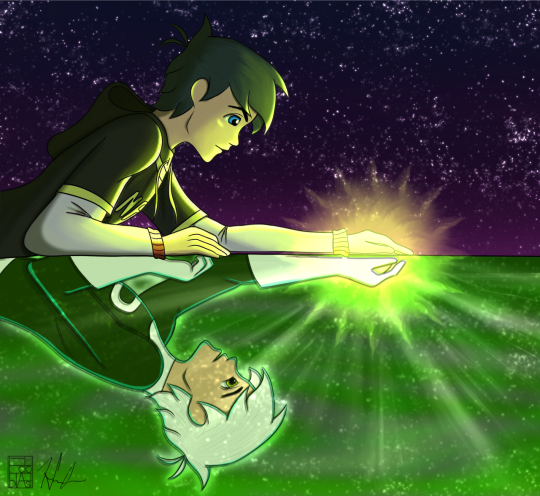
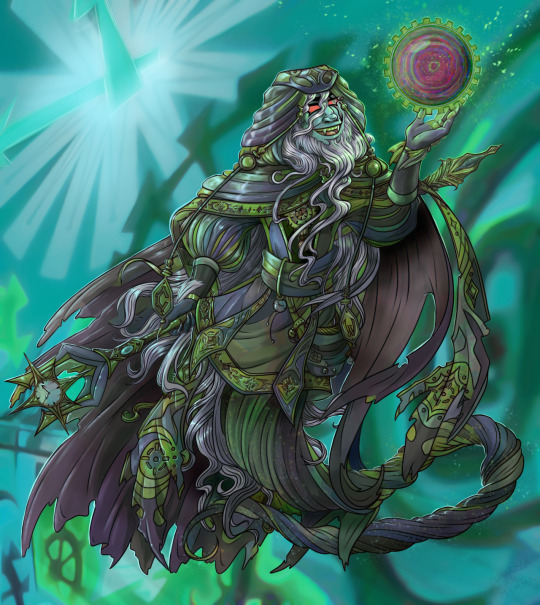

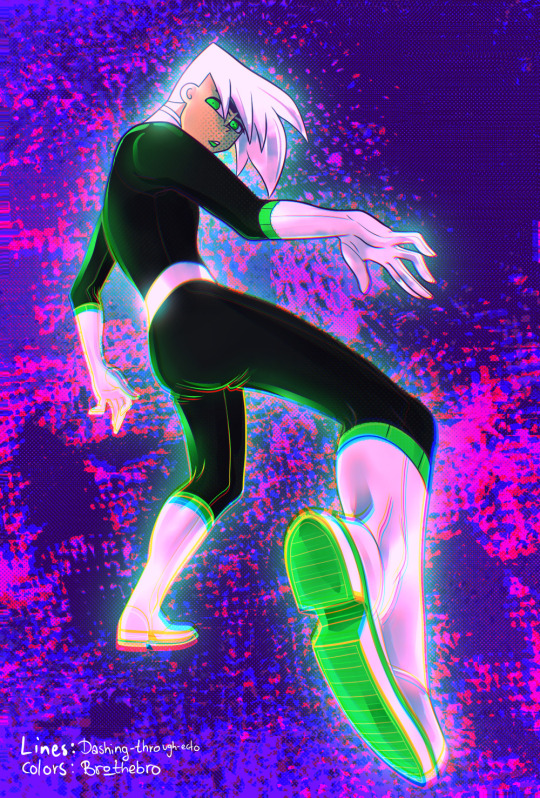
(lines by @ovytia-art, @jamiethebeeart, @maebird-melody, @hannahmanderr, @dashing-through-ecto, @minnowmarsh, @dashing-through-ecto)
Congratulations Red Team for filling some very big shoes and taking home the gold!
We did it, Guys~! Green With Envy 2024 is now officially over! Thank you so much to everyone who participated!
@echo-does-art, @half-deadmagicperson, @goodfish-bowl, @ectoblastfromthepast, @furiarossa, @fuyuthefoxwriter, @brothebro, amazing work!
You managed to submit 219 colors in one month!
Pre-Bonus Points Scores
Red - 1832 Blue - 1409 Yellow - 1524 Brown - 703 Green - 109 Purple - 307 Pink - 304
Orange - 347 Black - 297 White - 191
Post-Bonus Points Scores
Red - 2507 Blue - 1920 Yellow - 2145 Brown - 830 Green - 154 Purple - 444 Pink - 434 Orange - 457 Black - 387 White - 256
--------
If anyone wants to color line art from the 2024 event, these lines are now open for anyone to color, just make sure to read the notes the line artists left you and credit them when you post a color! Last year's (2023's) stuff can also be found here.
MVP’s for Bonus Points Across All Teams Under the Cut!
The top 3 bonus point earners overall were:
@jamiethebeeart from yellow team with 230 points
@ecto-stone from blue team with 194 points
@half-deadmagicperson from red team with 164 points
Here's how well colorists scored with the Mods for slower, but more detailed colors! Each color of this type that we could spot earned that participant 5 additional points!
These people all did Palette Challenges, earning them 3 additional points per entry!
@lavendarlily x9, @craftybookworms x6, and @half-deadmagicperson x1
These people colored in bulk, with every 25 pieces netting them an additional 10 points!
@nanaarchy x2, @fuyuthefoxwriter x2, @half-deadmagicperson x2, @reading-wanderer x2, @jamiethebeeart x2, @balshumetsbaragouin x1, @echo-does-art x1, @furiarossa x1, @ecto-stone x1, @marzfartz x1, @moonfoxgazer x1, @audaciousanonj x1, and @sherry-a-h x1
These 11 people successfully poached points!
Yellow Team @reading-wanderer got x4, @moonfoxgazer got x2, and @marzfartz got x2 For a total of 8 Poaches and 160 points Red Team @half-deadmagicperson got x3, @goodfish-bowl got x1, @echo-does-art got x1, and @brothebro got x1 For a total of 6 Poaches and 120 points Blue Team @ecto-stone got x2, and @sherry-a-h got x1 For a total of 3 Poaches and 60 points Brown Team @audaciousanonj got x1 For 20 points Orange Team @craftybookworms got x1 For 20 points
These people had some extra creative colors, which each earned 5 additional points!
@lavendarlily for their animated lightning @craftybookworms for their creative use of the empty countertop @minnowmarsh for their 3D papercraft @raaorqtpbpdy for spending a very long time adding in sheen effects and using multiple types of coloring tools @raaorqtpbpdy for their elaborate mixed media background with the main art as a 3d floating element @echo-does-art drew and colored all the additional knives @brothebro for their creative punchline to the meme @ecto-stone for trying the hidden transparency trick for first time @ecto-stone for another transparency trick @ecto-stone for this lovely gif worm @moonfoxgazer for the outrageously cursed and elaborate OC Slackjaw born of Susi's lines @moonfoxgazer for their creative punchline to the meme @furiarossa for the above and beyond body and fur texture added to Susi's lines, paired with an amazing background @furiarossa for coloring the lines to look like a statue, and adding a ficlet inspired by the color @ventisettestars for this time intensive Hades coloring style @dreamwraith's VERY time-intensive traditional oil painting @marzfartz for their traditional watercolor with a really nice background @marzfartz for another lovely watercolor @ectoblastfromthepast for their super nice digital piece that took them 3 days of intense focus @summerssixecho for their scanned magazine digital collage @jamiethebeeart for this stunning digital piece that has such a lovely added background @jamiethebeeart for adding basically a whole story to the background of their color @jamiethebeeart for adding a background that just really fit the vibes of the line art perfectly @jamiethebeeart for their portal accident animation @pokerust for their papercraft @goodfish-bowl for their amazing paint pour background @sherry-a-h for their diamond painted furby
Thanks so much everyone for all your hard work to make this such a successful event and we hope to see you again next year~!
Looking for the 2024 Masterpost? Looking for links to last year's stuff? 2023 Free-To-Color Line Art 2023 Event Decal 2023 Masterpost
180 notes
·
View notes
Text

A MYTH OF DEVOTION CHAPTER THREE.
by @magdalence & @divineidolatry
SEE MASTERLIST FOR TAGS + NOTES
pairing: sylus/mc | reader
rating: explicit (18+)
chapter word count: 5,243
“A complete and full resonance link comes at a steep price. Are you willing to pay it? Do you understand how much it will demand of you? How close you will have to get to me? I see how you look at me like I’m a nightmarish monster.” Sylus smirks, leaning in close enough that you can smell his perfume. Leather, metal, and gunpowder. At least, you think some of it is perfume and not just your attempt at his life.
You agree to try your best to resonate fully with Sylus. He agrees to let you go when you do. Both of you get more than you bargained for.

he preparations for the party are rigorous, every detail planned and gathered, no blank space left for anyone else to fill in beyond what Sylus has in mind.
Of course, you aren’t privy to most of it, but you feel it webbing out around you, a net that ensnares you into his intricate plotting. He keeps you in the dark when it suits him, which is far too much for your liking. At times, you catch glimpses of what webs he spin as personnel arrive and are quickly whisked past you. You follow, curious and irritated at being left out, and watch from the corner of the pared-down dark office as he has his measurements taken.
You settle in an old armchair, pulling your legs up underneath you.
“The way you are following me around,” he says, pulling up his sweater as the tailor takes out the measuring tape, “it’s almost like you can’t stand to be apart from me.”
“Don't think so highly of yourself,” you say. In the dim light, at least he can’t see you blush.
“Then have you come to discuss the kiss?”
He has tried to approach the topic several times in the days since, and each time you have shot him a withering glare that never fails to make him smile. As if it is all just a joke to him, a funny anecdote of his latest acquisition to fill the quiet rooms of the sprawling mansion. You sometimes wander from one end of the house to the other, wondering if he will ever turn you into a piece of art, kept amongst the others gathering dust. But the way his eyes burn when he looks at you, you think…
You don’t know what to think anymore.
“We played a game,” you say airily, studying your nails. “It wasn’t a real thing. It was hardly pleasurable.”
“Another time then,” he says easily, putting a pin in the discussion as if he’s waiting for you to change your mind. You won’t. Not with him. No matter what he does.
Not a single muscle moves on the tailor’s face as you and Sylus snap your teeth at each other, and you surmise that he must be cutting her a massive check to cover for privacy. Interesting. Is there no one else in the N109 zone willing to sign a bigger one, just for a glimpse into Sylus’ life? Or does he have a catch on her too sharp to ignore?
It turns your head inside out to consider. Why are people so damn loyal to him? What inspires it? Because all you’ve seen so far is…
You chance a proper glance at him and to your staggering shame, your breath catches for a moment. His shirt pulled up to his breast, the pants sat low on his hips… He looks carved from stone the way his stomach ripples with musculature. It’s obscene.
And he catches you looking.
His laughter is self-satisfied, belly-deep. “You like what you see,” he says. Not a question, but a statement, evidence of your guilt.
“Your looks are wasted on your rotten soul,” you say, brushing your hair down to cover the burning tips of your ears. “Such a shame. Maybe you can model for criminal fashion magazines. I hear they want someone for their next prison break issue.”
A second of shivering silence fills the room, the dry click of his tongue echoing in your ears. “Keep hissing, kitten. Maybe one day you will have to be taught proper manners.”
It is a strange threat, one that winds itself deep inside of you, touching upon a dark and latent twinge that ripples through your chest, down between your legs.
“You sound like you want to put me over your lap and spank me,” you say, the joke dry in your throat, a little choked, a heat coming over you that makes you feel peculiar. Like the temptation to find the exact point where you can pass a fingertip through a candle’s flame and come away unscathed. And then doing it again, a little closer, just to see…
Sylus steps away from the tailor and crosses the room, leaning in over you with his arms caging you in on either side. “What an intriguing thought,” he murmurs, and you can’t bear the heady crushing weight of his gaze on you, focusing on his Adam’s apple instead.
It doesn’t help much, the way it moves as he whispers to you in a voice so full of silk it suffocates you.
“Is that what you want?”
This is what it must feel like to burn.
“Never,” you say.
It’s the truth. Right? You’d never want him to lay a hand on you, to pull down your skirt and run his hand over the curve of your ass until…
“But you are thinking about it now, no?”
Never. Never. You hate him. You have to hate him.
His hot breath tickles your ear, a deep chuckle causing you to bite your tongue.
“You are very easy to read sometimes. I’ll have to remember that.”
You have to keep him at a safe enough distance. Just his physical proximity has that tangled darkness inside you that he so cleverly plucks at roaring up to meet him, eager to snap his fingers off, eager to take and take all that you are owed –
He breaks the spiraling shadows inside you from coalescing as he puts his hands on your shoulders, firm and heavy, and guides you up to stand on the step-stool. “Your turn, dear.”
The tailor takes your measurements, her dry and clinical hands barely touching the air around you as she tightens and loosens the tape. All the while, he watches, his eyes roving over your body as you can feel how he dresses and re-dresses you in his mind, imagining an outfit that will please his aesthetics.
When the tailor steps away, you find yourself in an odd daze, the sensation of the moment flickering warm and lurid underneath your skin. It is not entirely terrible to drift in, but you avoid him best you can, not wanting his presence to sear the images into your mind. Better to put them out. Better to stay away.
-
Sylus orders a dozen dresses and has them brought to you. All of them are deep shades of crimson with detailing in black, and you feel that odd sensation lurking deep inside you again, a turn in your nerves that feels so sharp and strange. It is not helped by how he is dressing you up as his, marking you with a signature color.
You pick through them, settling on one with long sleeves and covered from neckline down to the knees, staring at yourself in the mirror after putting it on. It clings to your skin, and you scratch at the fabric, pausing as it rips, taking in the horror of the noise. Then you return, ripping it further, eyes fluttering shut at the obscene noise of high-quality satin shredded to nothing. Of taking what is his and tearing it to pieces.
“Careless,” he says, and you jump, glaring at him.
“How do you move without making a single noise?”
He steps up to you, clicking his tongue as he touches the jagged fabric you have destroyed. “These dresses are bespoke.” He tugs at the fraying edge, shaking his head. “Such disdain for the work…”
A twinge of guilt blossoms, followed quickly by a white-hot image that flashes through your inner eye, of his hands tearing through the dress, his long fingers hooking into the seams and ripping them open to reveal your naked skin underneath, and you struggle to breathe. The room seems smaller, the ceiling lower.
“None of these suit me,” you say, gesturing at the rack. They’re all beautiful garments, tailored and perfected, but you need air. You need a choice that matters. And you need to carve it out of his offering hands. “Why don’t you take me shopping?”
“That is a security hazard.”
You scratch at the neckline, and it tears further, falling apart in your hands.
He sighs, furrowing his brow. “Fine. I don’t have time to argue with you. Consider yourself lucky. Five minutes, downstairs.”
“Lucky? Do you think I feel lucky being paraded around as yours?”
He waves his hand, sauntering off.
You change back into proper clothes so quickly you are still buttoning up the shirt when you get down to the garage, one of the twins holding open the door to a black car for you. You climb into the backseat and as the door locks behind you, you press up against it, trying to keep as much distance between yourself and Sylus as possible. He doesn’t seem to care, and it’s a dual-edged sensation: you both want him to give you a chance to bite, and you think you should enjoy being ignored by him.
It shouldn’t be this complicated.
As the car glides through the zone, passing through checkpoints, you take note of how the streets change from hollowed-out warehouses to streets glittering with luxury shop windows and people clad in fine designer wear – and armed security guards posted on street corners.
“This place feels so extreme,” you say, looking out the tinted window, seeing the zone pass by in a sepia haze. None of the security guards have any identifiable corporate name on them, just numbers. Everyone in this area looks like they have stepped out of a social media feed, shining and distant.
“That is because it is,” he hums, pocketing the phone. “Truly observant for a Hunter.”
“It seems somehow better and worse than the info packets made it out to be.”
“Because whoever is telling you about N109 doesn’t want you to know,” he says, running a thumb over his left knuckles. “Isn’t it better to think of this place as a lawless, criminal wasteland and not bother with it, to declare it a lost cause, rather than sink money into it? That’s how Linkon City sees it. That is how the outside tells the story of this place.”
“That’s not true,” you say, but what truths do you really know? You never thought you’d see this place just a month ago. You never dared to dream you’d be bound to a criminal like him, much less… It’s too complicated to even touch, the size of it escalating in your head just from brushing against it. What is he to you? Better yet, what are you to him?
He shakes his head, smiling sadly. “You should have stayed in your safe tower. Who knows what will befall you here.”
“Someone like you?”
He laughs. “I am far from the worst that could happen to you here.”
-
Dress after dress, you’ve lost count, each one either vetoed by Sylus or by you. This one’s too modest, this one’s too slutty. One doesn’t match, another one looks like they cut up one of his suits to turn it into a dress. By the time the garments get closer to what you’ll both tolerate, you are exhausted and indignant. It’s hard to relish good fashion when it is tainted by his taste.
“You must dress the part,” he says, shaking his head at a dress you find cute. “And that one is not fitting of an heiress.”
“Do you want me to dress more like your captive? We could add some shackles. Maybe accessorize with bejeweled manacles.” You hold up your wrists, flexing them. “That would be the real part.”
He scoffs, slumping back in the chair. “If you wish to see it as such, who am I to correct your opinion.”
You march back into the changing room, pulling the heavy drapery curtain closed with a frustrated groan. Shimmying out of the dress you look at the rest the staff wheeled in – before they served Sylus champagne and quietly withdrew. Stopping for a moment, you perk your ears, listening, and then grit your teeth. No one has come in since you two arrived. How rich is he that he can command the entire store emptied out of other customers? Too rich for the good of his own damn ego, you decide, discarding yet another dress onto the reject rack.
Your skin goosebumps in the cool air, and you take a precious moment to sigh, rubbing at your face.
At first, he remained courteous, letting you dress yourself, but as dresses grew more intricate you found yourself needing his hands as he helped you into them. It’s professional, mostly, or so you like to think. It definitely hasn’t prickled your skin the way he runs his hands across the dresses under the guise of ensuring they fall correctly. It definitely hasn’t made you feel insane with the strange push-pull inside your chest.
And it means he has seen you stripped down to your underwear a few too many times. More times than you’d like to acknowledge because you caught the way his gaze lingers in the mirror. And once, you caught yourself pressing your thighs together, much to your own embarrassment.
“Well?” comes his taunting voice from the other side of the curtain, and you breathe in hard through your nose, reaching for the final dress.
“Did no one ever teach you patience?”
“You are one to speak.”
It’s a dress you would never go for yourself, not something that would normally catch your eye, but it slips onto your body and changes the very air around you. Even though you have a shadow of sweat lining your upper lip, and your hair is in disarray, and nothing about your body looks good in the mirrors – it transforms you. You can’t quite do up the back yourself and give up trying, pulling back the curtain.
“Some help?”
He takes his time emptying the glass before he gets up, and you shift on your feet, feeling him drink in the sight of you too. There is a ravenous hunger to his eyes, and you turn your back to him so you don’t have to meet it directly.
His fingers find the buttons at your lower back, the tips skimming across your skin. His touch feels electric, and you hold your breath, hoping to lessen the risk of direct contact. The dress tightens, and you straighten up, pulling your shoulders down, and look at yourself in the mirror.
It’s beautiful. You feel it change the way you view yourself, despite the static hair floating around your face and the flush to your face from changing over and over – this is the one.
“This one,” you say, certain.
“Very well,” he says, plucking out the hair clip. “Let me see it with your hair down.”
You wrinkle your nose, shaking it away from your face. “No, it’s better up.”
He makes an exasperated noise, gathering your hair into a loose twist in one hand and pulling it up. You watch in the mirror as his expression shifts, as if he is finally seeing the vision you have in mind. It’s a small victory, you being right and him having to bend to it, and you think you will savor it for days, if not weeks, if not for however long you will rot chained to him.
He looks at you in the mirror, his free hand coming up to splay across your neck. “But this is far too empty.”
You swallow, his hand pressing down just enough that it unbalances you.
“Matching, or complementary?” he asks, more to himself than a question you should answer, his eyes drifting over you. He inhales, exhales, and smiles. “You are wearing that perfume again.”
There are times when it seems like you can catch a glimpse of his mind opening up and filing away details about you, like a perfect archive he keeps of every piece of information he wants to have. As if some part of him is actually enjoying learning about you, studying you… For what purpose?
“What do you want from me?” you whisper, unable to look away from his long fingers brushing against your collarbones.
“You offered full resonance.” His hand drifts away, and you bite back the traitorous desire to ask for it to stay, to have his touch linger. “Nothing more. But certainly nothing less.”
He gives you one final look in the mirror, but his eyes are closed off, the distance between you two edging itself in again.
What you wouldn’t give to be able to crack him open at a heart’s whim.
-
The days accumulate at his home, counting down to the party. You wake up each day looking at the dress hung up on closet door, touching the sleeves before you do anything else. It’s gorgeous, eye-wateringly expensive, and it hangs ahead of you heralding some obscured doom.
In your head, the party grows and grows, not without an ominous aura.
Certainly, parts of that due to how you are made to play the part of his – well, what are you meant to be to him, his plaything? Lover? Ditzy heiress willing to throw everything away for a bad boy? It’s tragically stereotypical, and yet whatever he wants the elite of the N109 zone to think, that is who you must be. The scrutiny you’re under as he shapes you into the perfect image… It’s peculiar and not entirely unwelcome, the way he is aiming you towards a distant target, even if it is one you cannot see just yet.
As you leave to find a way to fill another empty day, music drifts down the corridor, and you follow it, too curious to resist. So little changes in his house, and anything that is different immediately curls its fingers around your eager heart, luring you to explore.
Of course, he knows how to exploit this. Part of you even expected it, that part of you that rebels against yourself, that wants him to ensnare you in his life. How you try to mire yourself in hatred and how he slips right past it anyway because this sliver of you wants him to... Horrific.
The music leads you to a big room, feeling empty with all the furniture pushed up against the walls, and there’s just him and his off-beat humming intertwining with the music. He’s adjusting a record player, fine-tuning the volume settings, and you consider turning around to leave. You hesitate for a split second too long though, eyes drawn to his back because you can see the outline of his muscles underneath the shirt, and he knows instantly.
“There you are,” he says over his shoulder. “You are overdue for dance practice.”
He uses his Evol to shut the doors behind you and the shadow tendrils push against your lower back, urging you into the middle of the floor. Your feet are so soft against the hard wood, wearing only socks and barely making a single noise – compared to how his dress shoes fill the room as he comes up to you.
“Is this really necessary?” you ask, scowling.
“You came here posing as an heiress, so that is the persona you must live up to.” He rolls up his sleeves neatly. “Expensive taste, expensive schooling–”
“And terrible taste in men if I am with you.” You cross your arms over your chest, knowing that your resistance is a nuisance, even for yourself – but you have so precious little else to leverage against him, and you want to make each day he spends with you feel like a punishment.
Of course, he takes it all with such ease.
“I have more money than the other eligible bachelors there,” he says, unbothered. “Just play that angle if anyone asks. Who would fault you for being practical?”
“If that is all I care about as this heiress, I’d want to be someone else too.”
He looks at you with exasperated affection, holding out his hand. You throw him a pointed glare, but still, you take it.
“If we had more time, I’d teach you several dances in vogue. Alas, we must opt for simplicity. I trust you have a basic understanding of the waltz?”
You blink up at him and he makes a noise tonguing on frustration. He pulls you closer and rests a hand on your back, and that intense current ripples outwards from his touch, an electric sensation that renders you momentarily breathless.
“Just… Follow my lead. I’ll see what I can do.”
You aren’t awful, but you certainly aren’t great. He is so much taller and bigger than you, and you resist the rhythm he attempts so sternly to make you follow.
“At least try,” he says, amused disappointment dripping from his lips, pressing you closer to himself. You can feel how he breathes, how his heart is practically racing, thundering loud against you, and you wriggle out to step back, biting your tongue to stay focused.
“What is your game here?”
“Are you inquiring about today or long-term?” he asks, leading you across the floor. He’s got a way with words and another with his body, and the moments where you let go and just follow... It’s not too bad.
It might even be a little thrilling.
“Long-term is blatantly obvious. As for the party...”
“You want to spoil the surprise of it. That, I can’t do. There is value in your ignorance. If you play up the ingénue side of yourself, you might even be of use.”
“I don't like the way you keep me in the dark.”
“The shadows have inherent value. You should try to embrace that.”
You roll your eyes, eliciting a deep laugh from him.
“Your stubbornness, however, has less value.”
You press your lips together, ignoring the prickle of heat along the back of your neck. Cruelly, he lets you stew in it for a few moments, smiling to himself. Even when he doesn’t speak he is so dreadfully exasperating.
“Indulge me. Tell me about this heiress. I want to hear about your cover story.”
“Well, clearly she has a taste for danger if she’s with you.” Your eyebrow twitches, and it takes you a concerted effort to school your features into placid obedience.
“Daddy’s favorite girl gone bad... You might be able to play that, if you put some effort in.” He tilts his head, looking down at you. “And who is she to me?”
“Your little pet project. Maybe you’re corrupting her towards crime. Teaching her all about how it’s done. Wouldn’t that be something?”
“Cooking the books does not appeal to me at all. Try again.”
Tamping down on your frustration, you try to step on his foot and he outmaneuvers you with ease.
“You’re teaching her – me – how to be a murderer,” you say, reaching for acidic and finding poison welling up, drawn out from a deep well of resentment. In the light of this room, you can’t help but feel the sting of a gun in your hands, and it tempts viciousness to be this close to him. “You want to ruin me. You want to defile me. You want to use up everything I have and then let me wash ashore on a lonely beach.”
His expression changes, the carefree teasing drifting away. “Childish. Do better.”
“I’m not going to play devoted wife if that’s what you’re angling for,” you spit just as the music ends.
He drops you like you disgust him, like he can’t wait to get rid of you fast enough, and goes to turn off the music. You clench and unclench your hands, heat coursing through your veins like liquid fire. What is it about him that draws out such sharp parts of you, these parts that you keep tucked away from everyone else.
To injure him… It keeps you safe. And it hurts you too. That’s what feels so wrong about it all, like any cut comes back to your palms.
The music changes. Darker, more intense. It aches in you, evoking a lost image of nights spent in smoky bars, red wine so aged you could taste mossy cellars in each mouthful, him licking drinks off your wrist – your breath catches, jagged, and the image dissolves. Nothing but a daydream. Nothing but an errant thought conjured up from treasonous depths. It can’t have been real…
As you make to leave he catches your wrist and pulls you into his arms again.
“We are not done,” he says, voice low and hard.
His arms cage you into a dance that you don’t know, moving desperately to keep up with his movements. He presses you, pushes you, and you have to take two steps for every stride he does. His grip on you is firm, and distantly, all of this is familiar.
And it is getting harder to even want to stop it. It’s overwhelming, and yet, the more you surrender to it, the better it feels, despite the simmering rage, despite the fury that shocks between your oscillating bodies.
“You joke and joke, but these are serious matters.” His tone is tense. “The other guests won’t give you half the mercy you are getting from me. They will find each hole, each weak spot, and dig through it until they can rip you apart.”
“So I’ll be good bait,” you counter, not wholly believing it yourself. All you need is him to believe you trust yourself, which is easier said than done.
“You’d risk your life for information?” he sneers, a curl of disdain to his lips.
“I’ve risked my life for less.”
The music rises, and the dance, turbulent before, escalates. Your toes are barely touching the ground as he whirls you around.
“For what? People who want nothing but to control you? Harm you? People who are hardly worth all that care you pour into them?” He watches your expression, waiting, and then shakes his head. “You would. So you are a fool.”
“You don’t know anything about me.”
“Don’t I?”
Shadows flare up around him, slithering around him like a dark halo, and you try to break free of his arms, to end this charade of a dance that has morphed into something far more complicated. It treads on a messy unknown between you, one you cannot see the complete outline of.
He presses the dance into overdrive, eyes boring into you. “What do you remember?”
For a moment, you feel the past opening up in you, a mirage of something shimmering beautiful and tender, luscious with touch – and then it’s gone. Just a dream. Nothing more. There is nothing for you to hold on.
Yet your body wants to say: I remember this, I remember that we once danced like this, I remember the sensations from some other time and place, but your body is a rotten liar.
“Nothing!” you shout, breath ragged from the dance, frustration surging through your body, and his face looks like an open wound your words have slashed into him. His shadowy tendrils surround you, press in against your skin, and then disappear, dissolving into thin air as if they were never real either, just like your hollow daydreamed memories.
He lets go of you, but there’s a reluctance to his hands, the way they drift down over your arms, the back of his fingers brushing against yours before he steps away and turns off the music with a heavy finality. The dance practice is over. You haven’t satisfied him, but this is the first time it feels like a stinging failure.
“It would have been better for you not to have come here,” he says finally, voice tired, gaze avoiding you.
“I had to,” you reply, quietly hoping he turns around, looks at you.
He sighs. “So you did.”
-
For days, you rehearse your heiress persona with the twins while pointedly ignoring when they try to talk to you about Sylus.
It’s not a perfect creation, but it is so good she shines bright and clear in your mind. By the time you are preparing for the party, you have almost stopped touching the back of your fingers like Sylus did, trying to evoke the touch until your skin burns from the attempts. You aren’t even quite sure what you are trying to bring back, but you find yourself replaying the dance in your mind every resting moment.
If you didn’t know better, you might say he haunts you.
By the time you slip into the dress and pin up your hair, you barely recognize yourself in the mirror. It’s fascinating how just a dress can change so much, but to your consternation you find yourself agreeing with his dressing room assessment: the neck is too bare. You touch it, mimicking the way he did, riling up the butterflies in your stomach.
“Eager for jewels?” Sylus asks, and you briefly meet his eyes in the mirror before quickly looking back at yourself.
“You wouldn’t want me looking cheap, would you?”
“Never,” he says, stepping up behind you.
It’s hard to tell if he is colder because of what you did or because he is concerned, but before he has a chance to present you with the jewelry in his hands, you burst out: “I’m sorry. For what I said.”
He seems taken aback before quickly piecing his suave mask together again. “Would an heiress apologize like that? It’d be safer for you to play above such small feelings. In this place, there are many monsters and demons lurking, eager to strike. This, at least, will make them think twice before approaching you.”
The necklace he puts around your throat is beautiful: blood-red rubies set in dark metal, striking and bold.
“You want them to think I’m yours,” you say quietly, gingerly touching the lowest ruby where it rests right above your cleavage.
“To mark you as mine in their eyes will keep you safe tonight.” His fingers linger by the clasp even after fastening it, and you want to stay in this moment, to drag out the seconds.
“Ah,” he says, dropping to one knee behind you and feel a flutter of excited terror as he takes out a small pistol and slides his hands up your right thigh. “And for what I can’t protect you from, you should have this to help.”
He secures the gun into your thigh garter, resting his cheek against the thigh high stockings held up by them, and you rest a hand in his hair as he does – ostensibly to support yourself, but it feels so…
“All done,” he says, voice low and warm.
What a sight the two of you make in the mirror. Like a queen and her loyal knight, willing to do anything for her: go to war, die, resurrect himself endlessly for her heart’s whims. He sees it too, staying still, his hand rubbing along the inside of your thigh as you ponder the vision in your reflection.
He turns his mouth to your thigh before he stands back up, and as the two of you head downstairs to the car that will whisk you away to a lethal party, you think he might have pressed a stolen kiss to your thigh, but you can’t be quite sure – except for this: that if you were his queen, you’d like to order him to do it again, and slower.
#sylus#love and deepspace sylus#lads fanfiction#lads sylus#love and deepspace fanfic#sylus love and deepspace#sylus x mc#sylus x reader#sylus x you#lnds sylus#l&ds sylus#sylus fanfiction#love and deep space#lnds#love and deepspace#lnds fanfic
57 notes
·
View notes
Text
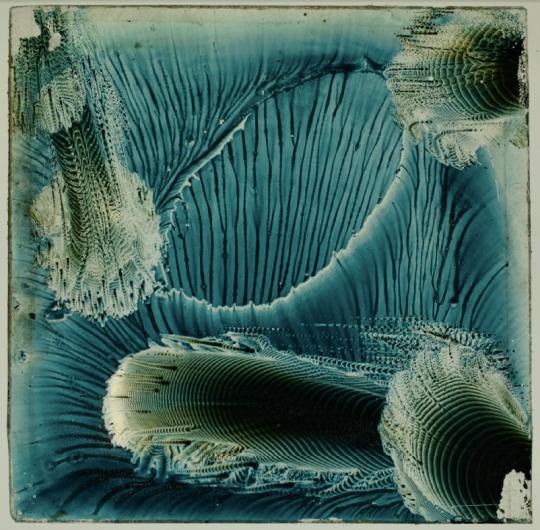
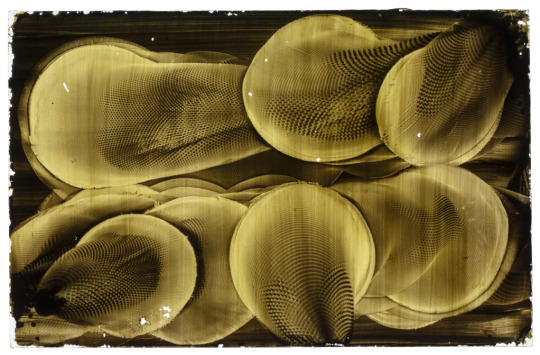
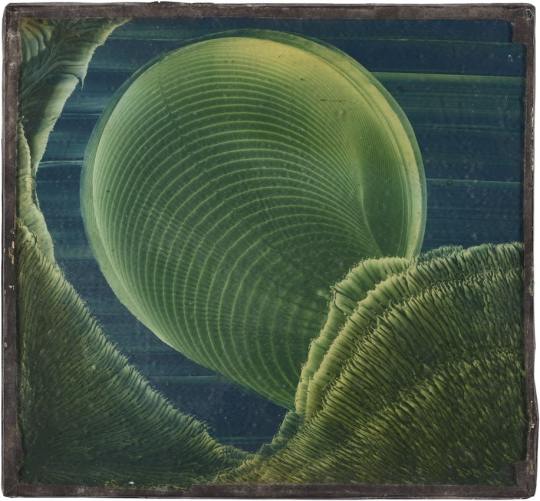
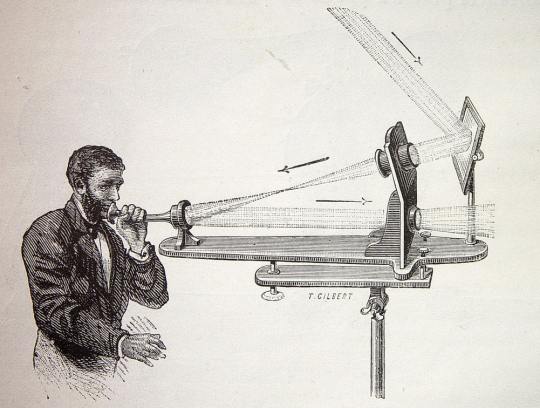
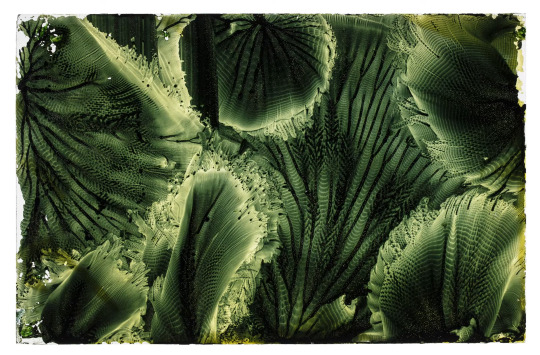
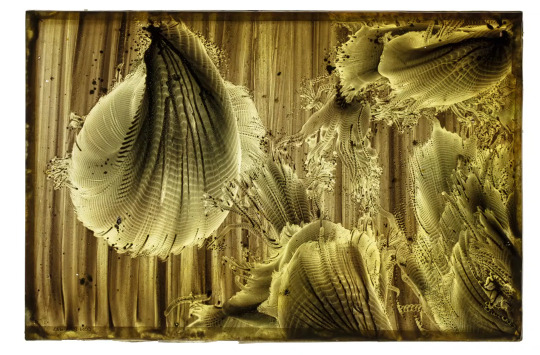
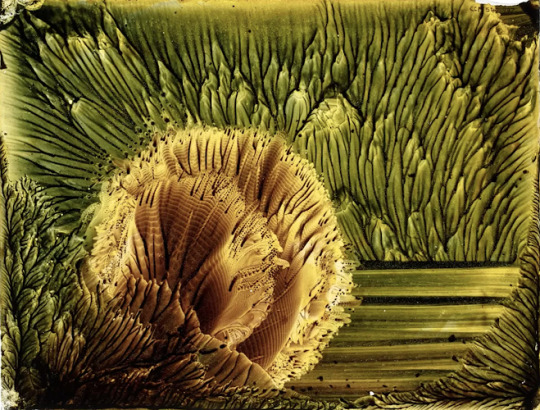

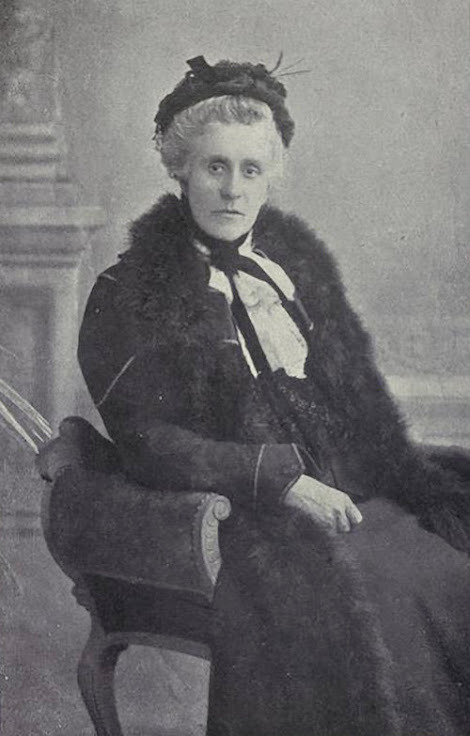
Once upon a time in 1885, Welsh singer, songwriter, scientist, and philanthropist Margaret Watts Hughes accidentally invented a method of turning her voice into images.
Hughes explained her invention, the eidophone, and her image-making process in an article for Century Magazine in 1891:
"In 1885, while seeking means to indicate readily the intensities of vocal sounds, I first met with these [voice] figures, and, owing to their variety both in form and production, they have since absorbed much of my attention. The apparatus I have employed I call the eidophone. This is very simple. It consists merely of an elastic membrane, such as thoroughly flexible soft sheet-rubber, tightly stretched over the mouth of a receiver of any form, into which receiver the voice is introduced by a wide-mouthed tube of convenient shape. In some cases the receiver may be dispensed with, and the membrane be stretched across the open end of the tube itself.
My first experiments were made with sand, lycopodium powder, or the two substances mixed. I then tried for the production of voice-figures, flooding the disk of the eidophone with a thin layer of liquid ; e.g. water or milk. Upon singing notes of suitable pitch through the tube, not too forcibly, beautiful crispations appear upon the surface of the liquid, which vary with every change of tone. A note sung too forcibly causes the liquid to rise in, a shower of spray, the movements of which are too rapid to be readily followed by the eye. To facilitate observation denser liquids may be used. By using such liquids as colored glycerin particularly beautiful effects may be obtained. Subsequently I found that by employing moistened powder of different consistencies yet another description of figures appears. The earliest result of my experiments in this material shows centers of motion from which radiations diverge."
By varying the sound of her voice and the materials and methods used to capture it, different patterns emerged.
If we dig a bit deeper into the process, we find greater complexity. Sophie B. Herrick did just that in Visible Sound – Comment [Century Magazine 42, 40 (1891)]:
These voice-flowers are not the simple visual forms corresponding with the vibrations of the air set in motion by the voice. The waves generated in the closed bowl of the eidophone are reflected again and again from the sides of the vessel. The volume of air inclosed has its own rate of vibration; the stretched membrane has also its own rate, which in turn is modified by the character and thickness of the paste spread upon it. Added to these are molecular forces of cohesion and adhesion between the particles of paste, and again between the paste and the membrane. The form which grows into shape is the resultant of all these complicated forces, and, in some instances, new elements of change have been added. A glass plate is placed on top of the vibrating membrane and moved over it. We have a new body introduced with its proper rate of vibration, besides a mechanical motion further to complicate the problem.
According to an article in MIT’s The Net Advance of Physics Weblog, Hughes’ “flower-like forms” were rediscovered in the 1960s by Swiss researcher Hans Jenny, who went on to coin the term cymatics to describe acoustic effects of sound wave phenomena. However it appears as if Jenny was only familiar with the black and white reproductions of Hughes works as published in her Century article.
The larger color works were thought to be lost(!) but were found in 2016 by the staff of the Cyfarthfa Castle Museum, located in Merthyr Tydfil, Wales, while digging through their archives. Taken as a whole, Hughes’ work has a foot in two camps —as part of the history and study of the physics of sound, and as part of the history of art. These works were displayed as such during her lifetime.
One can imagine that the Surrealists would have been quite taken with these voice-figures, automatism sans hands, and I find them quite beautiful and striking as works of visual art that do not fit the tidy androcentric narrative of history, art or otherwise (see Hilma af Klint for a similarly jarring example).
93 notes
·
View notes
Note
Are you a Mad Men fan? I'm curious what your thoughts are on the Rothko centric episode
Forgive me for being overly digressive about this instead of just simply answering.
I always have a feeling of trepidation when something I love is worked into the popular culture. I think it's a throwback from before the Internet when things felt more precious and personal because they were not as widely distributed. When I was a kid if you had $10 you had one record, if you have $10 now you have the whole history of music on Spotify ( we will temporarily forget that they are destroying the music business and using the money to make robots for the army).
But if you had an Os Mutates or Mulatu Asake record back then chances are you were bringing it from a different country and it was as if you had fetched the sword from the lady of the lake and were bringing it back to the common people. The effort required to be interested in certain things seemed to make them extra special due to your devotion and labor. I think maybe that's why one can feel protective of certain things like "I hope everybody doesn't get into this now and ruin it."
It's actually counterintuitive, but that's sometimes how it works. I loved Ghost World but was nervous that one of my favorite artists Skip James, was a feature of the movie . I thought they might diminish it because it's Hollywood, but actually of course they did a perfect job with it partially because of the director is also a legendary record collector of early music.
All of this is to say that I was pretty worried about how they would treat a Mark Rothko in a main stream television show. But honestly, I think they did a pretty good job. When I finally saw it I thought it was good they used a reproduction of a real painting ( even though someone on Reddit misinformed everybody saying it was invented) . I thought what was good about it is that the reactions of the characters on the show to the painting pretty much track with my experience of people discovering Rothko.
One person thinks it's for the monetary value, another one doesn't understand it and still another person sees something in it that they can't describe. And I thought that was pretty good, I think for a Rothko specifically that's realistic. Also as conservative as the 1950s was, in some ways people were more receptive to new art. The media treated art as something that was culturally important rather than a waste of time and money. Life magazine had a circulation that reached a quarter of the American public and they would have articles on people like Jackson Pollock.
So I thought it was not bad and also so many people who had never heard of Rothko discovered him through the show so that was an accompanying felicity. 
I still find it a little strange the TV is the main communicator of culture but millions of people had never heard Nick Drake until a Volkswagen commercial so I suppose that was a net positive for the world that they did .
81 notes
·
View notes
Text

The rise of abstract art is often thought of as a story of painting and sculpture. But art forms such as weaving, basketry, netting and crochet are brought to the fore in this long-touring exhibition, which is now concluding its run at The Museum of Modern Art (20 April–13 September). Who wants to go with me?
14 notes
·
View notes
Text
There Is No Safe Word (Part 1 of 10)
How the best-selling fantasy author Neil Gaiman hid the darkest parts of himself for decades.
By Lila Shapiro, a features writer for New York Magazine. Jan. 13, 2025
(Source) (Part 2) (Part 3) (Part 4) (Part 5) (Part 6) (Part 7) (Part 8) (Part 9) (Part 10) (Prewarning)
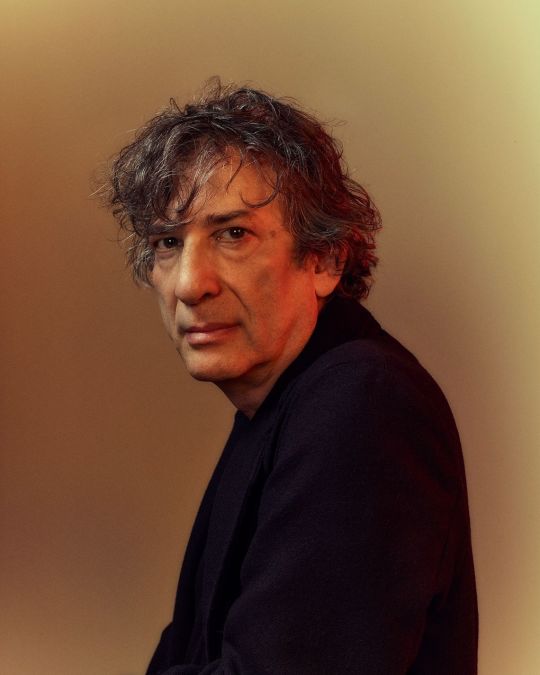
Photo: Guerin Blask/August
This article was featured in One Great Story, New York’s reading recommendation newsletter. Sign up here to get it nightly.
Editor’s note: This story contains content that readers may find disturbing, including graphic allegations of sexual assault & child abuse.
Scarlett Pavlovich was a 22-year-old drama student when she met the performer Amanda Palmer by chance on the streets of Auckland. It was a gray, drizzly afternoon in June 2020, and Palmer, then 44, was walking down the street with the actress Lucy Lawless, one of the most famous people in New Zealand owing to her six-season stint portraying Xena the warrior princess. But Pavlovich noticed only Palmer. She’d watched her TED talk, “The Art of Asking,” and was fascinated by the cult-famous feminist writer and musician — by her unabashed self-assurance.
On the surface, Pavlovich appeared to be self-assured as well. A local girl, she had dropped out of high school at 15 to travel to Europe, Morocco, and the Middle East on the cheap, pausing in Scotland — where Tilda Swinton gave her a scholarship to attend her Steiner school, Drumduan — and London to work in the cabaret scene. Eventually, her visa expired and she ran out of money and so, in 2019, she returned to Auckland, where she enrolled in an acting school and took a job at a perfumery. Pale and dark-haired and waifish, she favored bold colors and outrageous outfits. On the day she met Palmer — on most days then — she’d painted a triangle of translucent silver beneath her lower lashes so it looked as though she’d been crying tears of glitter. It was Pavlovich who approached Palmer on the sidewalk outside the perfumery. She was surprised when Palmer texted her a few days later. “It’s amanda d palmer,” she wrote. “Your new friend.”
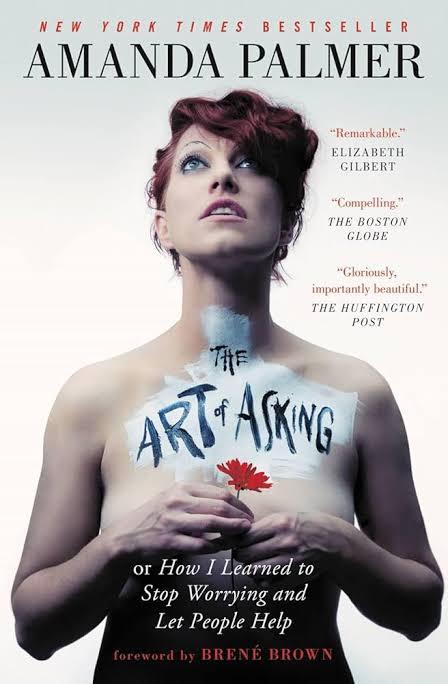
Cover of Amanda Palmer's book, The Art of Asking (2014).
Palmer, an obsessive chronicler of her own life in songs, poems, blog posts, and a memoir, got her start as half of the punk cabaret band the Dresden Dolls, but she is perhaps more famous for her ability to attract a tight-knit and devoted following wherever she goes. In 2012, she became the first musician to raise more than $1 million on Kickstarter and later became one of Patreon’s most successful artists. As Palmer explained in her book The Art of Asking — part memoir, part manifesto on the virtues of asking for assistance of various kinds — she had built her entire career on “messy exchanges of goodwill and the swapping of favors.” Out of this mess, she argues, a utopian sort of community formed: “There was no distinction between fans and friends.”

Amanda Palmer on Waiheke Island, New Zealand. Photo: Duncan Innes.
Over the following year and a half, Palmer and Pavlovich occasionally met for a drink or a meal. Palmer offered Pavlovich tickets to her shows and invited her to parties for the Patreon community at her house on nearby Waiheke Island, a lush bohemian retreat with vineyards, golden beaches, and more than 60 helipads to accommodate the billionaires who vacationed there. Sometimes Palmer asked Pavlovich for favors — help running errands or organizing files or looking after her child. Pavlovich was happy to assist. She had a crush on Palmer. She didn’t mind that Palmer only occasionally discussed paying her, even though Pavlovich was always strapped for cash. For Pavlovich, who was estranged from her family and without a safety net, Palmer filled a deeper need. In November 2020, Palmer invited her to hang out at her place for a weekend with a group of local artists. At the gathering, Palmer asked Pavlovich to babysit while she got a massage. Early the next morning, Pavlovich wrote a diary entry about the easy intimacy she’d felt in Palmer’s sun-drenched home, where she’d read to Palmer’s son, who was 5 at the time, their limbs entwined. “The years absent of touch build up like a gray inheritance,” she wrote. “I’m hungry. I am so fucking famished.”
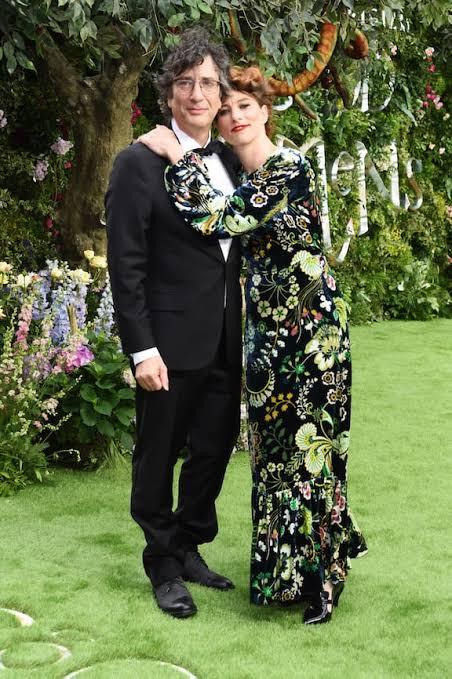
Neil Gaiman and Amanda Palmer. Photo: Dave Benett/WireImage.
On February 1, 2022, Palmer texted Pavlovich and asked if she wanted to spend the weekend babysitting, which would mean bouncing back and forth between her house and her husband’s. Pavlovich had never met Palmer’s husband, from whom she was separated, though of course she knew who he was: Neil Gaiman, the acclaimed British fantasist and author of nearly 50 books, including American Gods and Coraline, and the comic-book series The Sandman, whose work has sold more than 50 million copies worldwide. Gaiman and Palmer had arrived in New Zealand in March 2020, but just weeks later, their nine-year marriage collapsed and Gaiman skipped town, breaking COVID protocols to fly to his home on the Isle of Skye. Now, he’d returned and was living in a house near Palmer’s on Waiheke. Their previous nanny had recently left, and they needed help. Pavlovich agreed and was pleased when Palmer offered to pay her for the weekend’s work.

Waiheke Island, Auckland, where Amanda Palmer and her husband Neil Gaiman have settled with their son. Photo: AucklandNZ
Around four in the afternoon on February 4, Pavlovich took the ferry from Auckland to Waiheke, then sat on a bus and walked through the woods until she arrived at Gaiman’s house, an asymmetrical A-frame of dark burnished wood with picture windows overlooking the sea. Palmer had arranged a playdate for the child, so not long after Pavlovich arrived, she found herself alone in the house with the author. For a little while, Gaiman worked in his office while she read on the couch. Then he emerged and offered her a tour of the grounds. A striking figure at 61, his wild black curls threaded with strands of silver, the author picked a fig — her favorite fruit — and handed it to her. Around 8 p.m., they sat down for pizza. Gaiman poured Pavlovich a glass of rosé and then another. He drank only water. They made awkward conversation about New Zealand, about COVID. Pavlovich had never read any of his work, but she was anxious to make a good impression. After she’d cleaned up their plates, Gaiman noted that there was still time before they would have to pick up his son from the playdate. “‘I’ve had a thought,’” she recalls him saying. “‘Why don’t you have a bath in the beautiful claw bathtub in the garden? It’s absolutely enchanting.’” Pavlovich told Gaiman that she was fine as she was but ultimately agreed. He needed to make a work call, he said, and didn’t want Pavlovich to be bored.
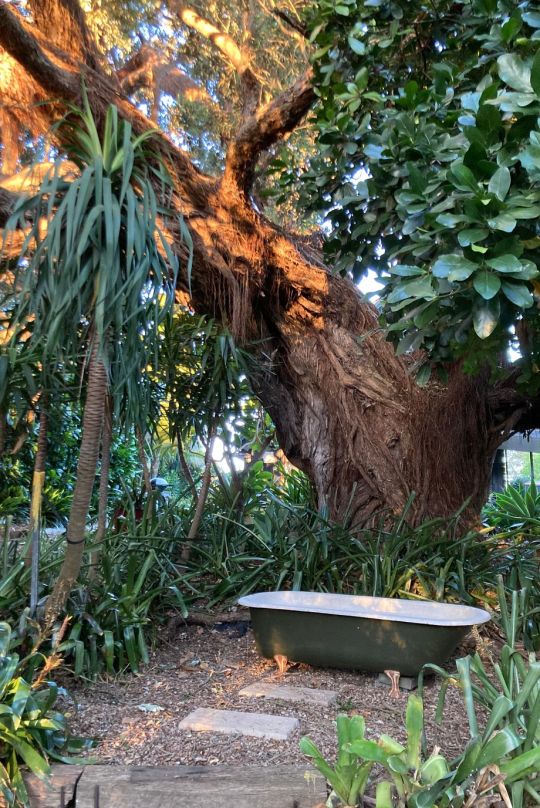
February 2022: The bathtub in Gaiman’s garden where Scarlett Pavlovich alleges he raped her, which Gaiman denies. Photo: Courtesy of Scarlett Pavlovich.
Gaiman led Pavlovich down a stone path into the garden to an old-fashioned tub with a roll top and walked away. She got undressed and sank into the bath, looking up at the furry magenta blossoms of the pohutukawa tree overhead. A few minutes later, she was surprised to hear Gaiman’s footsteps on the stones in the dark. She tried to cover her breasts with her arms. When he arrived at the bath, she saw that he was naked. Gaiman put out a couple of citronella candles, lit them, and got into the bath. He stretched out, facing her, and, for a few minutes, made small talk. He bitched about Palmer’s schedule. He talked about his kid’s school. Then he told her to stretch her legs out and “get comfortable.”
“I said ‘no.’ I said, ‘I’m not confident with my body,’” Pavlovich recalls. “He said, ‘It’s okay — it’s only me. Just relax. Just have a chat.’” She didn’t move. He looked at her again and said, “Don’t ruin the moment.” She did as instructed, and he began to stroke her feet. At that point, she recalls, she felt “a subtle terror.”
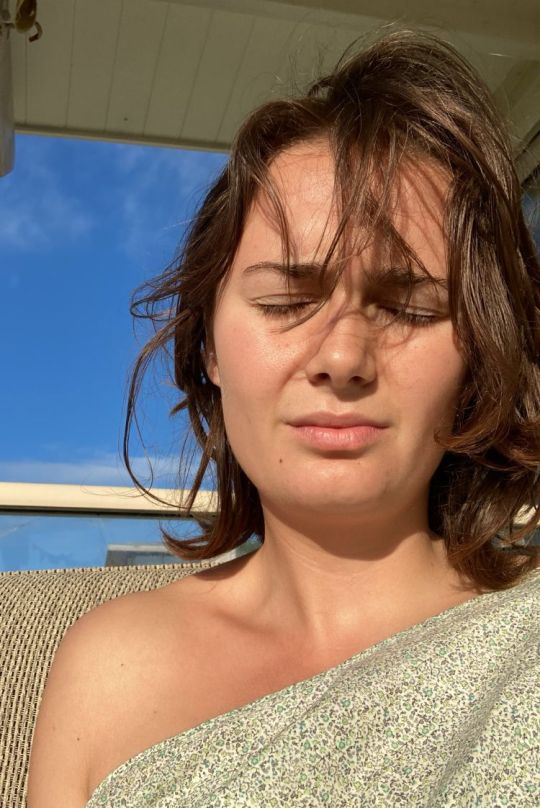
February 5, 2022: Pavlovich the morning after the bathtub incident. Photo: Courtesy of Scarlett Pavlovich.
Gaiman asked her to sit on his lap. Pavlovich stammered out a few sentences: She was gay, she’d never had sex, she had been sexually abused by a 45-year-old man when she was 15. Gaiman continued to press. “The next part is really amorphous,” Pavlovich tells me. “But I can tell you that he put his fingers straight into my ass and tried to put his penis in my ass. And I said, ‘No, no.’ Then he tried to rub his penis between my breasts, and I said ‘no’ as well. Then he asked if he could come on my face, and I said ‘no’ but he did anyway. He said, ‘Call me ‘master,’ and I’ll come.’ He said, ‘Be a good girl. You’re a good little girl.’”
Afterward, Pavlovich crouched down in the water and tried to clean herself off. Gaiman looked at her and smiled. “‘Amanda told me I couldn’t have you,’” Pavlovich recalls him saying. As soon as he’d heard this, he “knew he had to have” her. “‘God,’” he continued, “‘I wish it were the good old days where we could both fuck you.’”
Next: Part 2
#tw: sa#tw sa mention#neil gaiman#neil gaiman allegations#good omens#good omens fandom#neil gaiman accusations#neil gaiman abuse#tw child abuse#tw childhood trauma#the sandman#lila saphiro
15 notes
·
View notes
Text
Majericon and the Arquivo Municipal de Lisboa (Lisbon Municipal Archives) announce the reprint of the book
Artur Pastor - Portugal, país de contrastes [Artur Pastor - Portugal, a country of contrasts] is a photographic guide to the legacy of Artur Pastor (1922-1999), one of the few Portuguese photographers who, between the 1940s and 1990s, left us a vast and extensive body of work in terms of representation of Portugal: a collection of tens of thousands of photographs, including 6×6 and 35mm negatives, in black and white or colour, slides and print proofs.
Taking as its starting point the text Portugal, a country of contrasts, written by Artur Pastor in April 1954 for the magazine Portugal Ilustrado, and his testimony “Portugal cannot be visited only with the eyes because it can also be felt in the heart”, this book constitutes a photographic guide to the legacy left by photographer Artur Pastor, evoking his ambivalent restlessness, around writing and photography, the coast and the interior or rurality and modernity. “Portugal is not just visited with the eyes, because it is also felt with the heart” , this book is a photographic guide to the legacy left by photographer Artur Pastor, evoking his ambivalent restlessness, around writing and photography, the coast and the interior or rurality and modernity.
Bringing together a selection of 250 black and white photographs, among the many that make up the estate acquired from his family by the Lisbon City Council in 2001, its aim is to showcase the work of this unique photographer and his vision of Portugal, a country that has disappeared and changed in the memory of the youngest, but reflects a present past for those who lived it.
In the selected images you will find an ethnographic survey of agricultural work, such as ploughing with oxen, sowing and harvesting, shepherds and their flocks, threshing on the threshing floor or mechanical threshing with a steam engine. In fishing activities: tuna fishing on the Algarve coast, the art of xávega in Nazaré with oxen pulling the boats, the preparation and drying of fish in baskets, the repair, transport and washing of nets, the distribution of fish in grids on the sand for the fish market in Sesimbra, crafts and crafts, fairs and markets, popular festivals, industry, urban and rural landscapes.
Pre-Order your copy:
https://majericon.com/en/product/arturpastor/
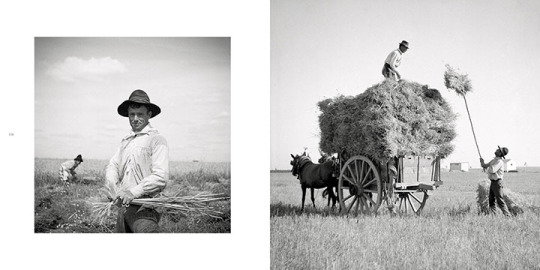
36 notes
·
View notes
Text
Bandai Japan Announces Tamagotchi Connection Art Series

Preorders are now open for the new Tamagotchi Connection Art Series! This collection features your favorite Tamagotchi Connection characters on various products. These products include stickers, memo pads, tv-type magnets, acrylic keychains, can badges, eye glass cases, wet wipes cases, and more!

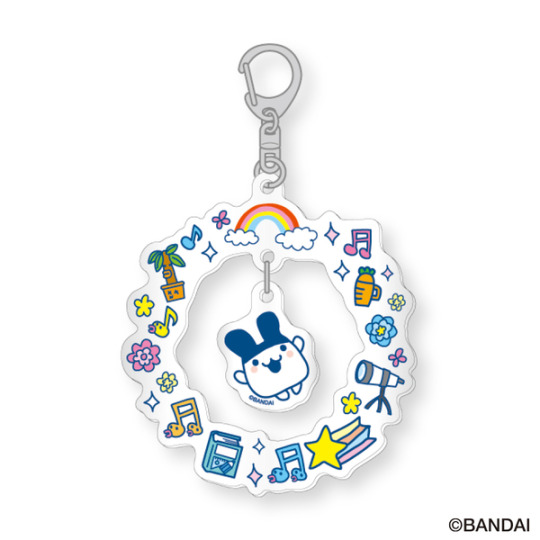
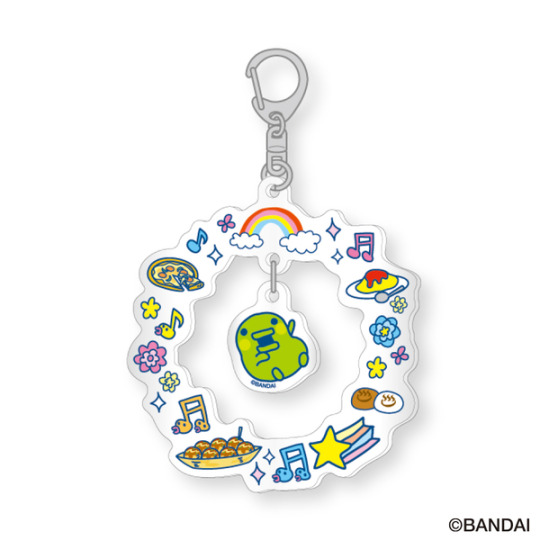


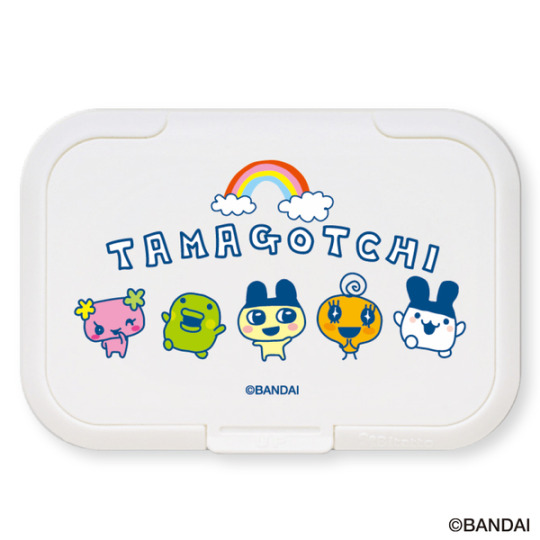
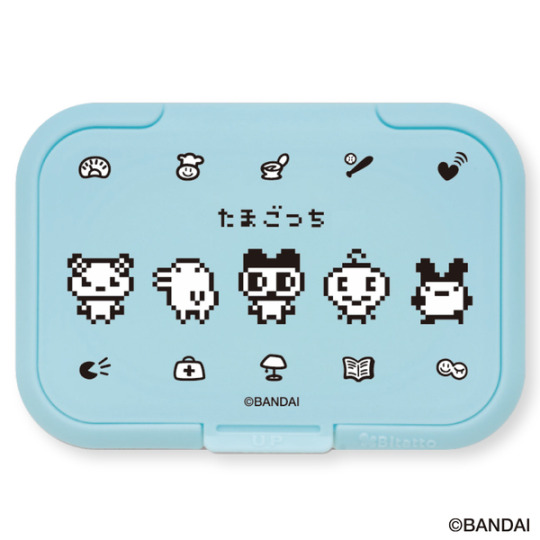
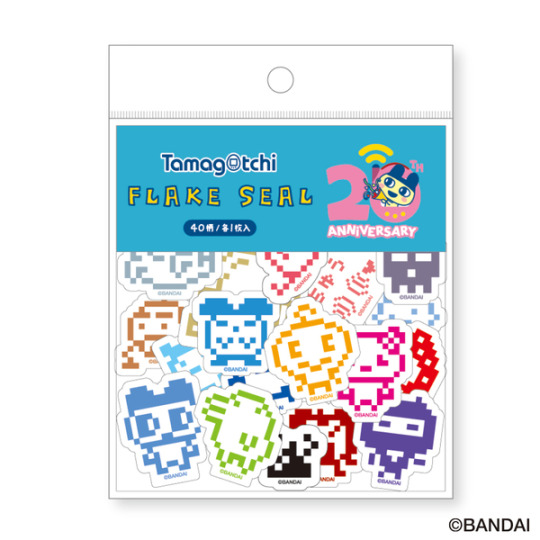
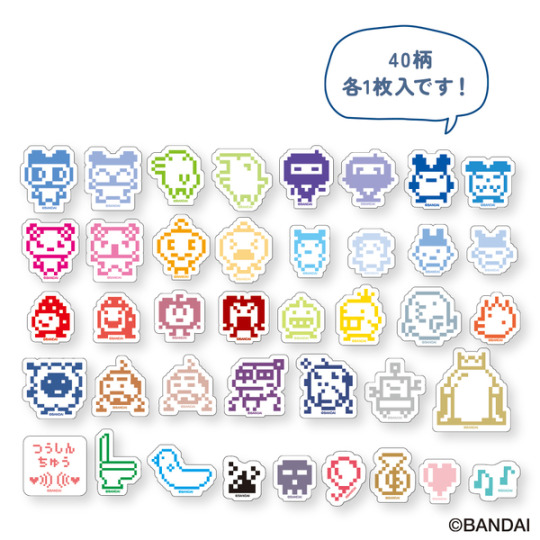


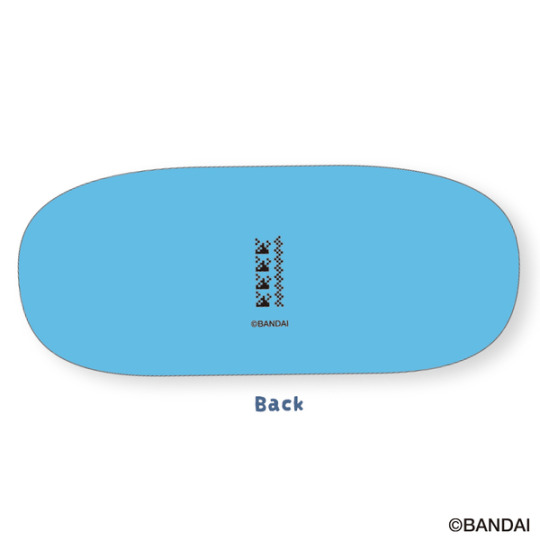
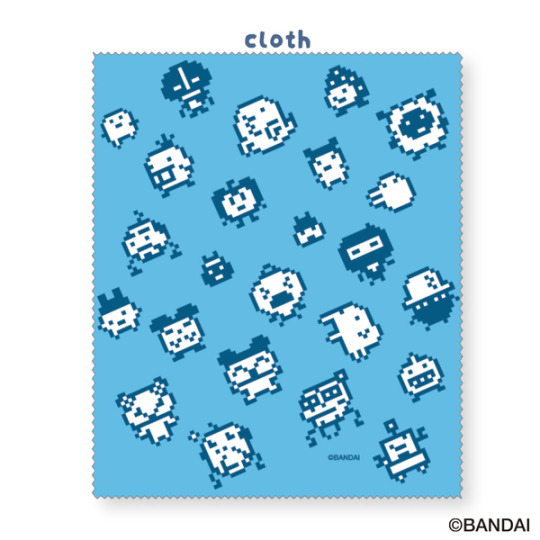
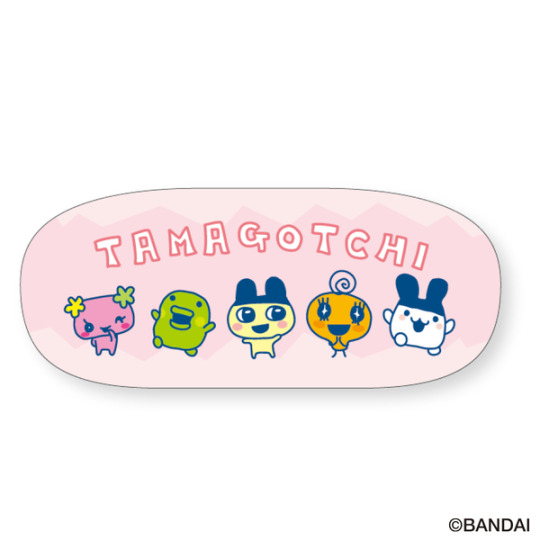
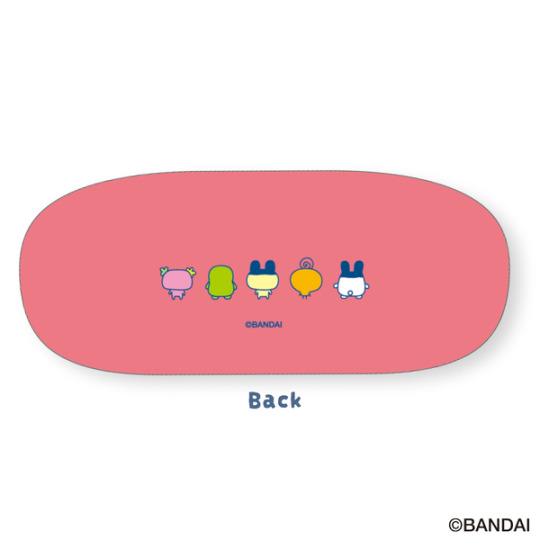
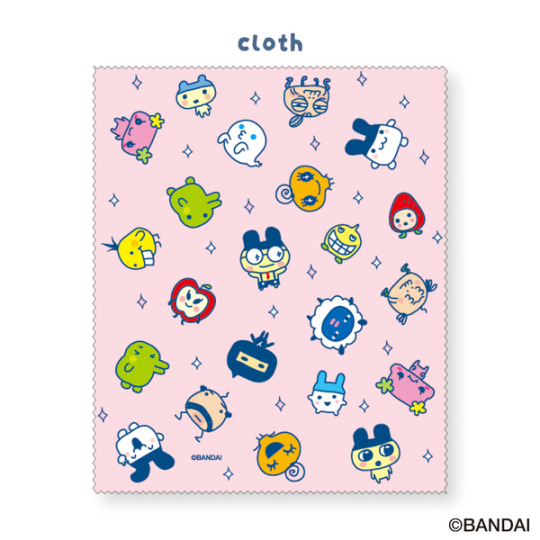

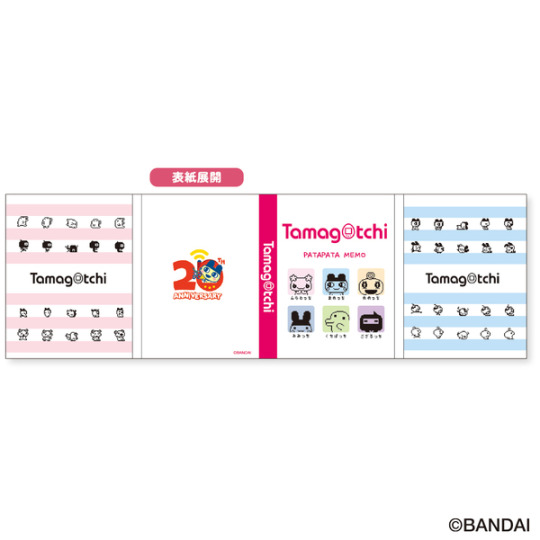
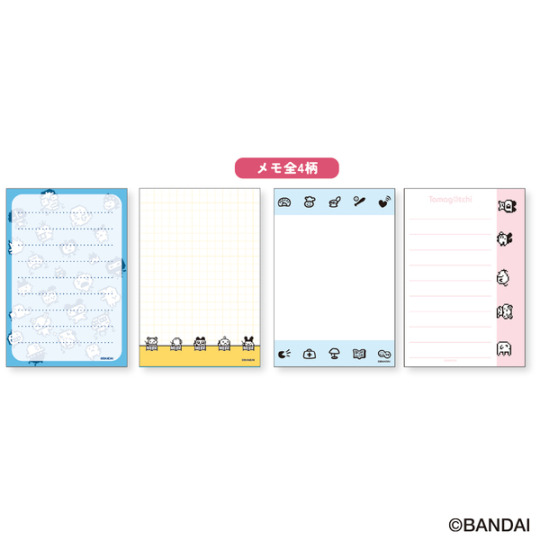
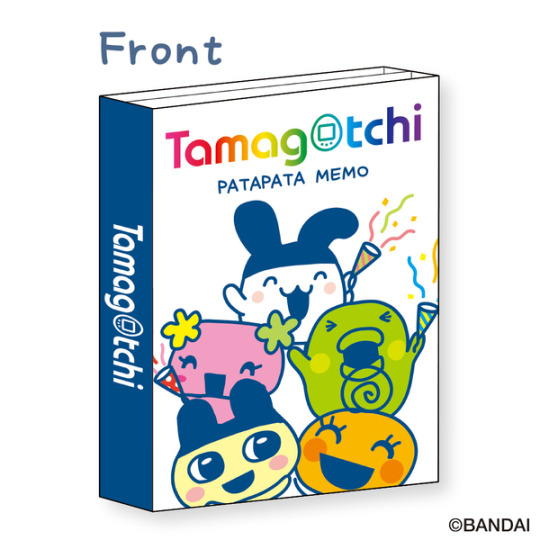


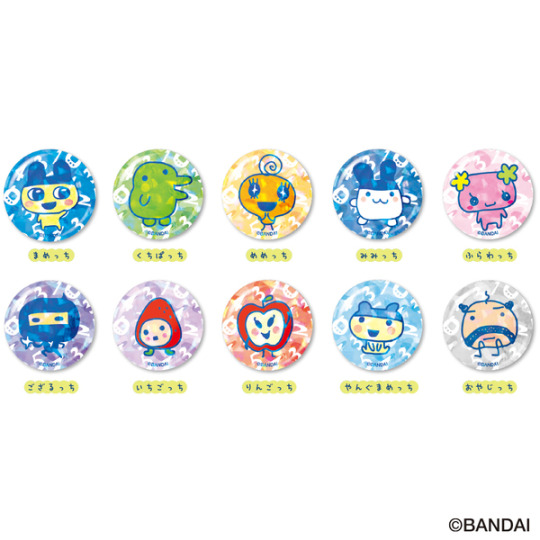
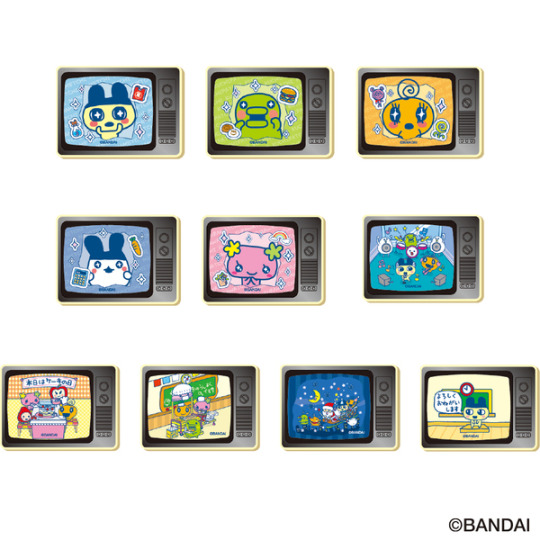
The collection is scheduled to ship late September, 2024 and preorders are now available on the Seven Net website, which is a retailer that sells books, magazines, CD’s, and more!
#tamapalace#tamagotchi#tmgc#tamagotchiconnection#tamagotchi connection#connection#tamatag#virtualpet#bandai#merchandise#licensing#tamagotchiconnectionartseries#tamagotchi connection art series#jp
21 notes
·
View notes
Text
Solarpunk Worldbuilding 2 - Mesh Intranet

*Artwork by @bird_wells214 as reference*

*Unknown artist*
As mentioned in the previous post, there is still internet in this world but it's different now. No longer is it doom scrolling that's filled with politics, drama, influences, and more. Now, it's the intranet.
The internet exists, but it's localized. Instead of one global net, each town has ther own unique mesh intranet. Communities share and upload stories, tech guides, magazines, songs, ans documentaries - all accessible for free.
"Influencers" exist in a way, but it's different now (more on that in another post).
While every Data Slate has a journal and map built in, there's a collection of unique "apps" that people can get and use.
This includes but not limited to:
Mood Gardens - Like a mood tracker in a sense. A gentle, visual space where users "plant" their feelings like seeds. You can select a mood (calm, angry, happy, sad, etc) and pair it with a sound, color, or image. Others can visit your little digital garden and leave small acts of care - Like a kind comment shaped like a dew drop, or a song in the shape of a mushroom. Mood Gardens bloom or wilt based on how the person feels over time, creating a space of quiet emotional check-ins and empathy.
Story Weave - A collaborative story writing and memory keeping project. Residents can start a thread with a piece of story - fiction or nonfiction, fantasy or memoir - and others can respond with artwork, voice recordings, music or the next part of the tale. It's part art gallery, part campfire circle, and part community archive.
Masked Mosaic - An anonymous space where users can share secrets, confessions, or thoughts they're not ready to attach a name to yet. Every post appears as a piece of Mosaic art with changing colors and patterns based on tone. It's moderated with care and compassion by community - appointed listeners rather than traditional mods.
Patchwork Trades - Kind of like Facebook Marketplace. A beautifully, digital barter board shaped like a quilt. Instead of listings and posts, every item or service offered appears as a patch. You might hover over or click a patch and find "hand-drawn pronoun pins" or "will watch your cat and water your plants." When Trades happen, a thread is digitally stitched between the two patches, showing the connections growing.
BuzzHive - A social update board styled like a honeycomb. You can share what you're up to - "Baking sweet potato rolls!" "Making rain charms today." "Feeling soft + sleepy." - but instead of likes and comments, others can send reactions like tiny bees: "hum of support" "sunbeam hug" "sprout of joy" or "quiet sit with you."
GroveTube - This is where people post tutorial videos - like how to bind books with wild-grass thread, build a bee-sade lantern, or compost using only forest scraps. It also includes soft-spoken vlogs, musical performances from tree balconies, and messages from traveling members. There's no algorithm, just categories like "soothing" "skillshare" "storytelling" or "random joy."
Rest Mode/Gentle Logout - Instead of pushing for endless engagement, the intranet encourages resting offline. If someone logs out for a few days or weeks, their profile softly fades to dusk colors, with a message like, "[User] is in rest-mode. Send soft love." Others can leave soft tokens or small notes that don't alert the person until they log back in.
The Vault of Remembering - A quiet, encrypted memorial place for those who have passed on. It contains memories, audio clips, digital letters, and little symbols like wind chimes or falling stars that friends and family can leave behind. It's updated during community Remembrance days with candles lit both physically and digitally.
The ideas are free to use for whatever you want or use for inspiration! All I ask is that you CREDIT ME! And feel free to send me an ask on more details to this lovely world :)
20 notes
·
View notes